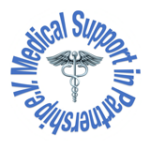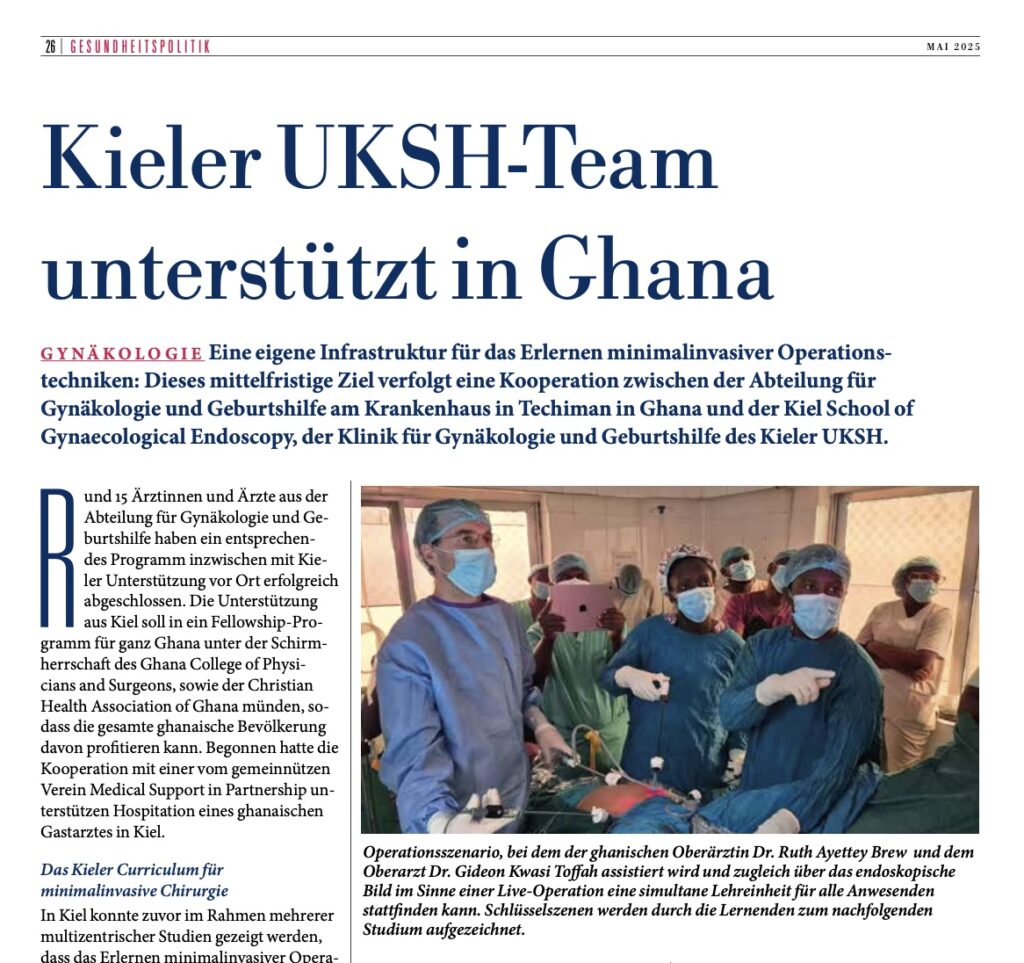November–December 2025: Pre-Eclampsia Study in Techiman
Study Launch and Purpose
Together with the team at Holy Family Hospital in Techiman, and in partnership with Professor Kypros Nicolaides and the Fetal Medicine Foundation (FMF), the first observational study on pre-eclampsia prevention in Africa was initiated. Close collaboration with the local clinical lead, Dr Friko, made it possible to integrate the study directly into daily clinical routines.
The objective is to generate local baseline data on pre-eclampsia. Pregnant women between 11+0 and 13+6 weeks of gestation undergo standardised assessments, including crown–rump length measurement, mean arterial pressure, ultrasound-based evaluation of maternal blood vessels and a structured medical history according to FMF standards. Data are analysed using FMF software and, at the end of the study, will be compared with the observed incidence of pre-eclampsia to determine detection and false-positive rates.
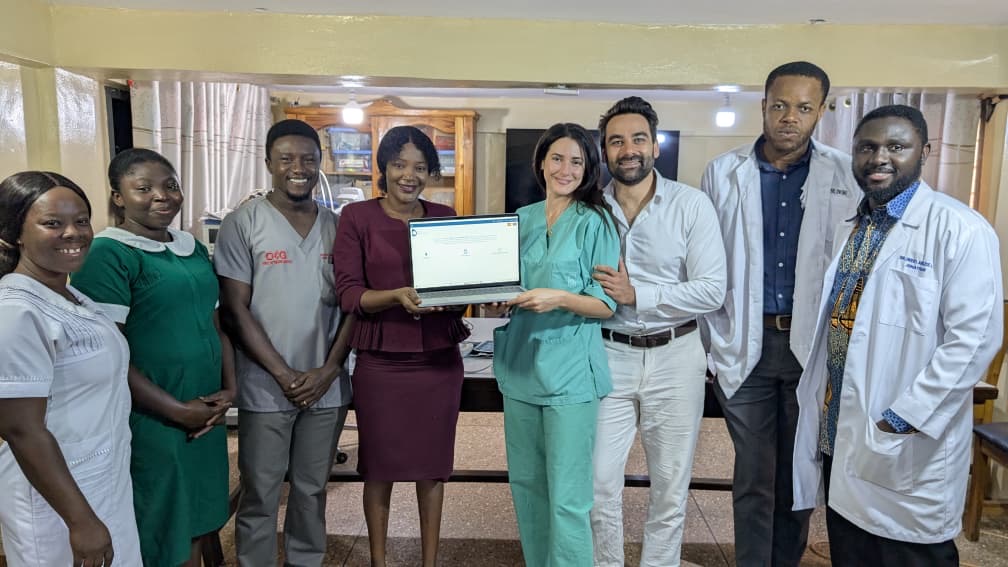
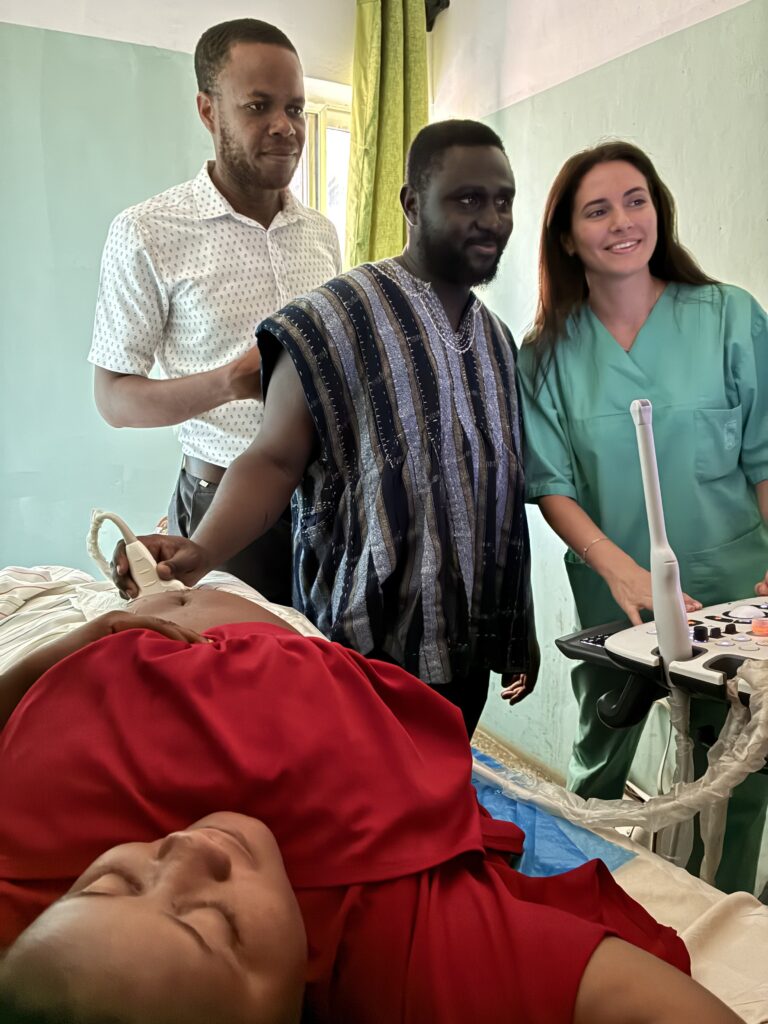
Infrastructure and Training
Diagnostic infrastructure was established with support from Professor Nicolaides. Laptops with pre-installed FMF software ensured full compliance with international standards. On 18 December 2025, a Voluson Signature 20 ultrasound system arrived in Techiman and was immediately incorporated into clinical use.
At the same time, intensive training of the local team took place — both in the acquisition of study-relevant measurements and in the use of the FMF software. Daily teaching and hands-on ultrasound practice in fetal growth, Doppler assessment and fetal abnormalities allowed rapid skills development. As a result, reliable study data could be collected and newly acquired competencies were applied straight away in routine care — including accurate first-trimester gestational age assessment for all pregnant women.
Clinical Findings and Outlook
The clinical relevance became evident even before the study officially began: within a few days, five cases of placental abruption were detected, highlighting substantial underdiagnosis and undertreatment of hypertensive disorders in pregnancy.
During the mission, several severe fetal conditions were identified, including hydrocephalus, bilateral encephalomalacia, gastroschisis and multiple cases of fetal growth restriction. Clinical decisions were made collaboratively within the team on the basis of detailed ultrasound findings and comprehensive patient counselling.
A particularly significant milestone was a medically, ethically and communicatively guided termination of pregnancy at 34 weeks in a case of severe bilateral encephalomalacia — the first procedure of this kind in the history of Holy Family Hospital. It clearly demonstrated the need for a structured fetal medicine unit.
Looking ahead, two members of the hospital team are expected to pursue structured specialist training in London. The mission has laid the foundation for the first FMF-based pre-eclampsia programme in Africa, significantly strengthened local diagnostic capacity and represents an important step in the medical development of the region.
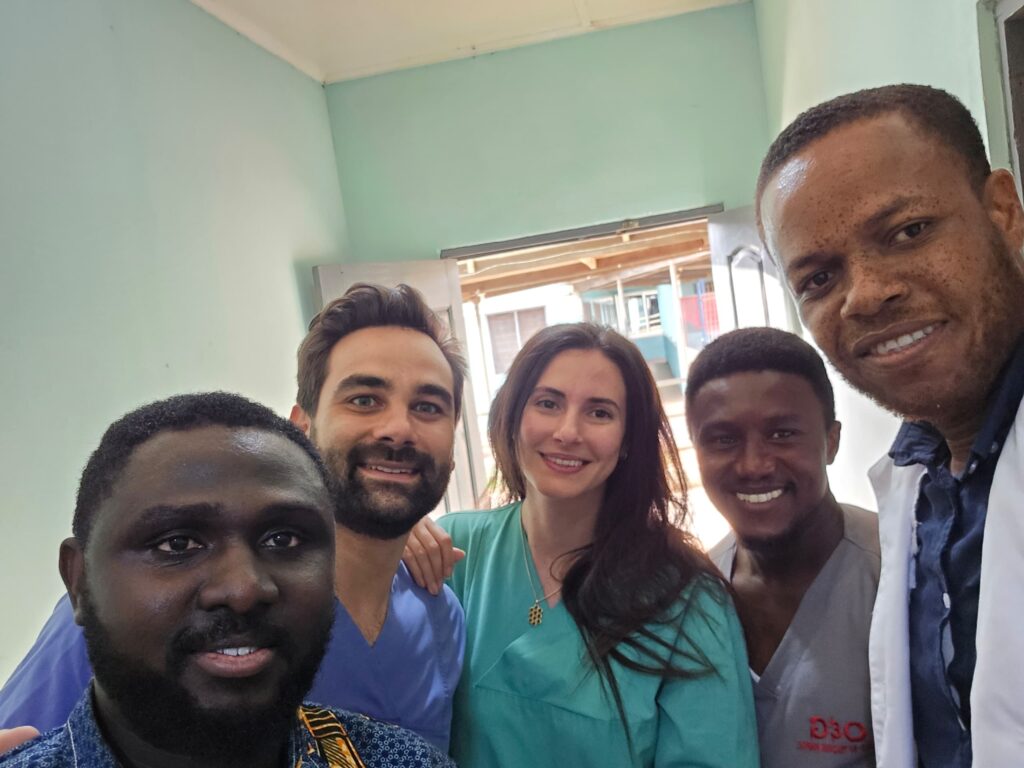
October 2025: Expanding Cervical Cancer Screening and Training in Techiman
Strengthening Local Capacity
From September 20 to October 4, 2025, a medical team from Austria, led by Dr. Dr. Nadja Taumberger, visited the Holy Family Hospital in Techiman to continue the ongoing collaboration in cervical cancer prevention and training. The team, which included Dr. Teresa Pan, worked closely with the hospital’s staff to strengthen diagnostic and treatment capacity for women’s health.
With support from GIZ and other donors, important new equipment could be provided, including a mobile colposcope, an electrosurgical generator, and a thermocoagulator – all designed for use in low-resource settings. Materials for HPV self-sampling tests were also supplied, enabling large-scale cervical cancer screening.

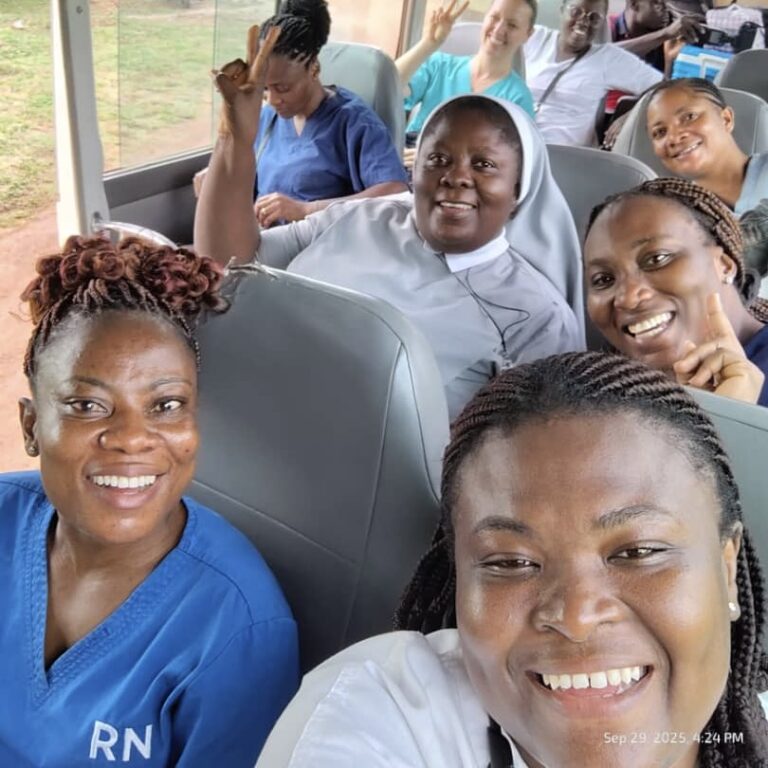

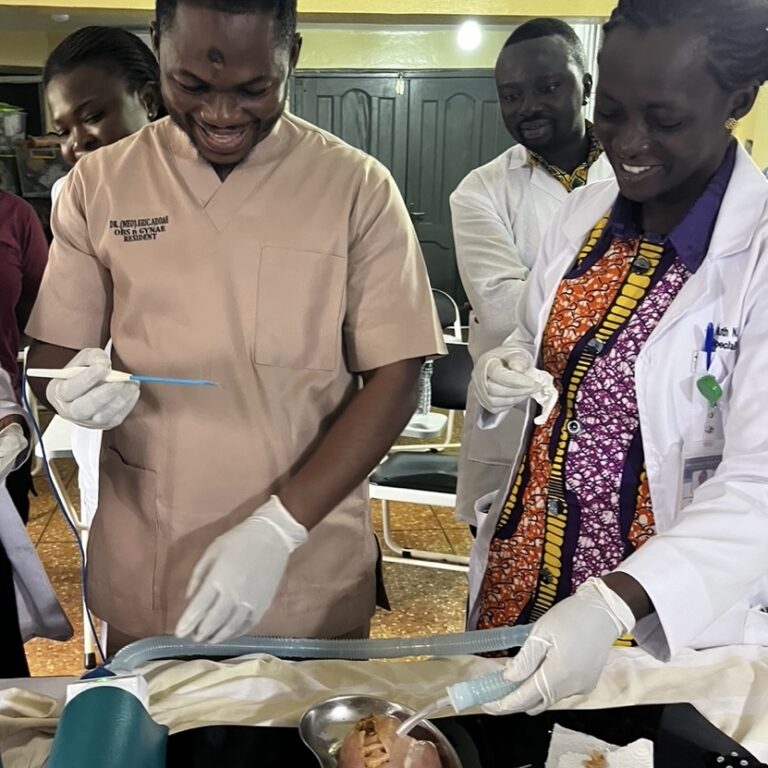

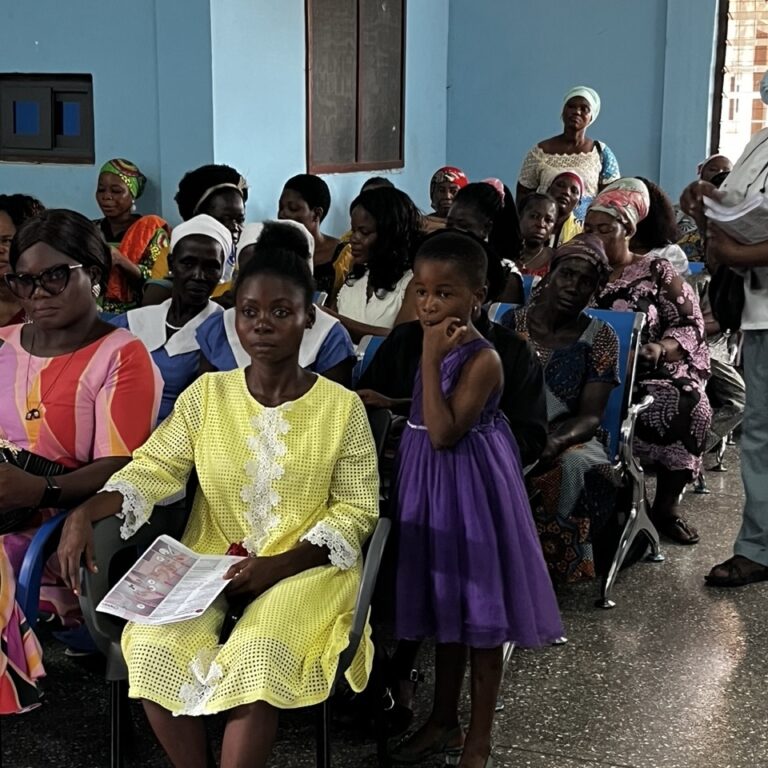
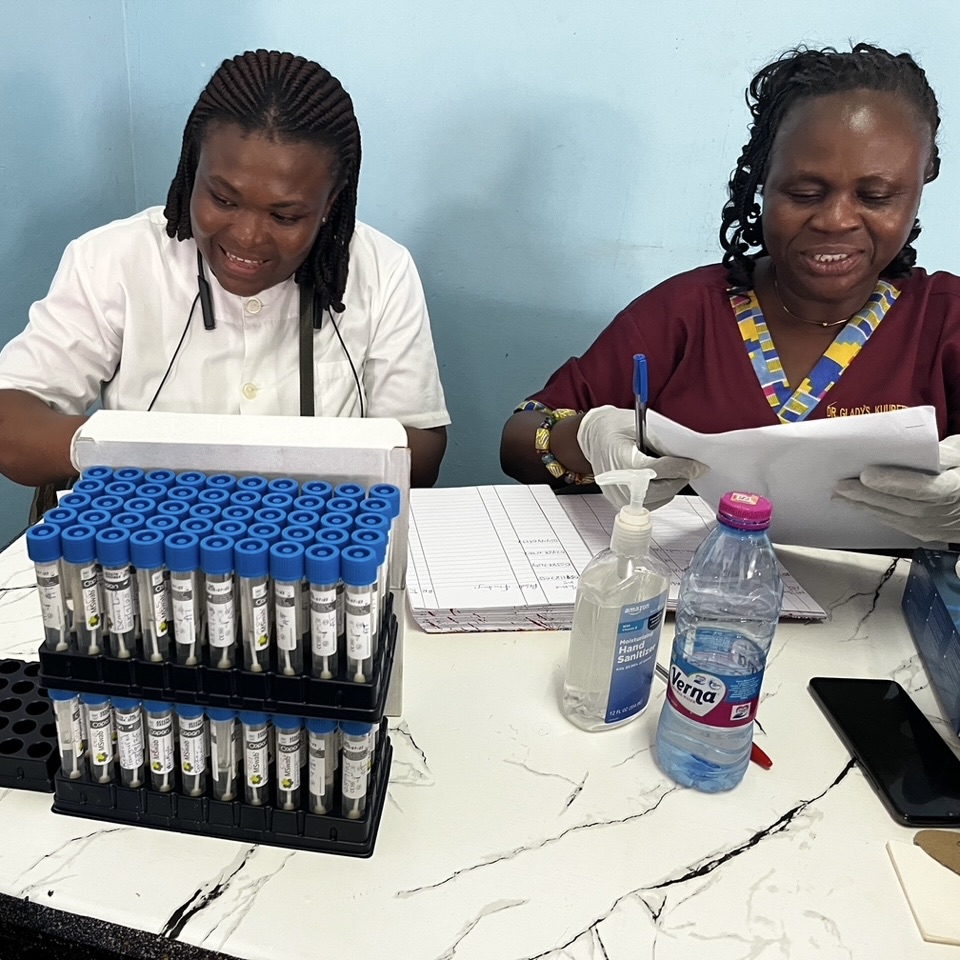
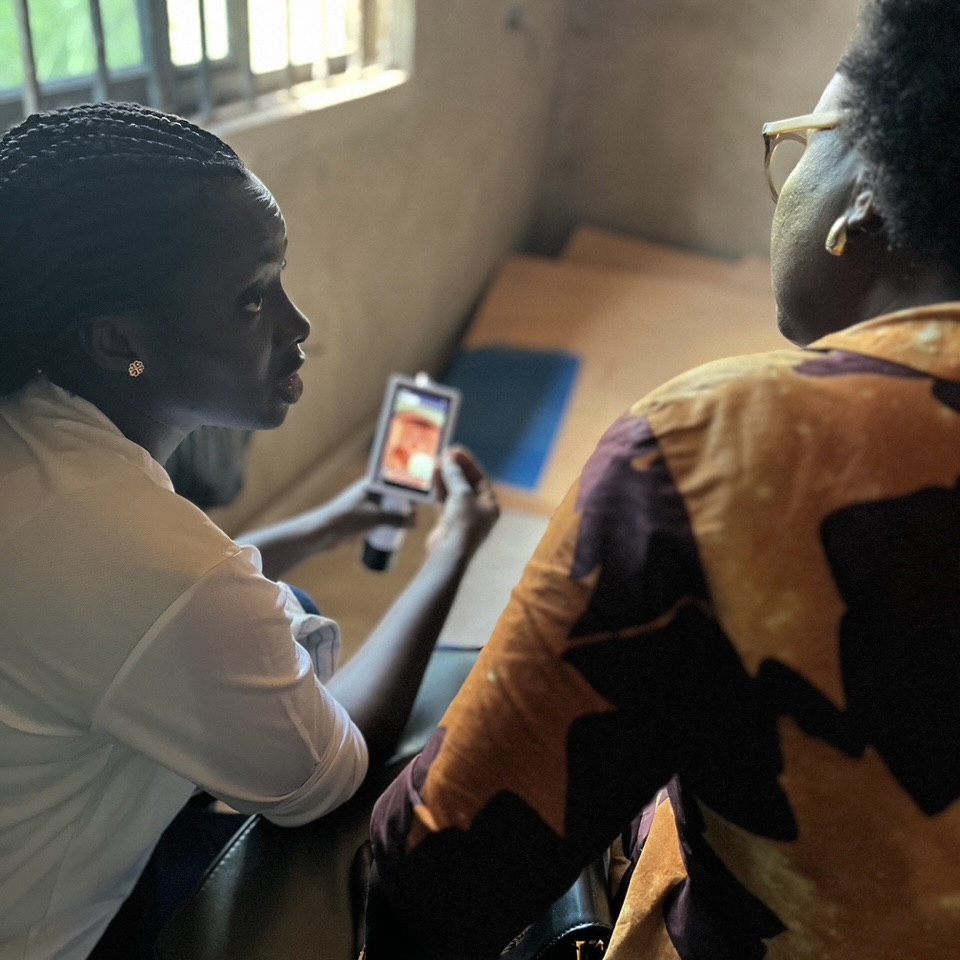
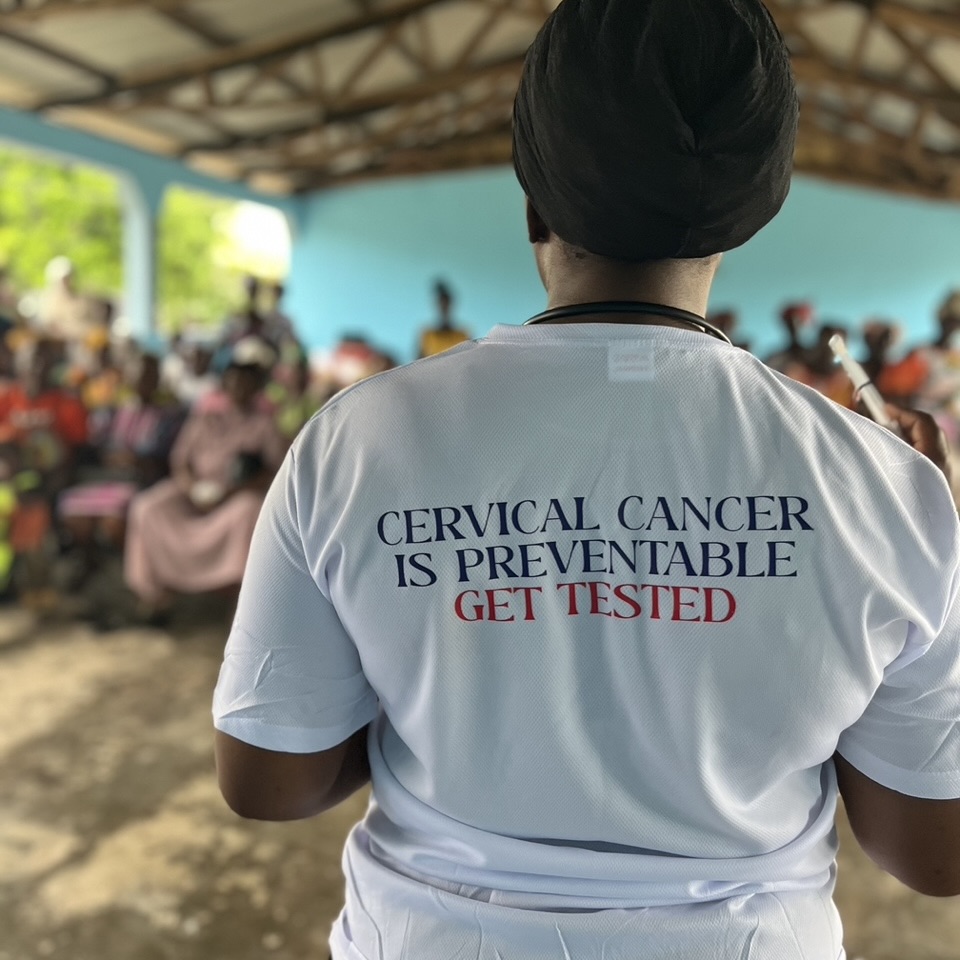

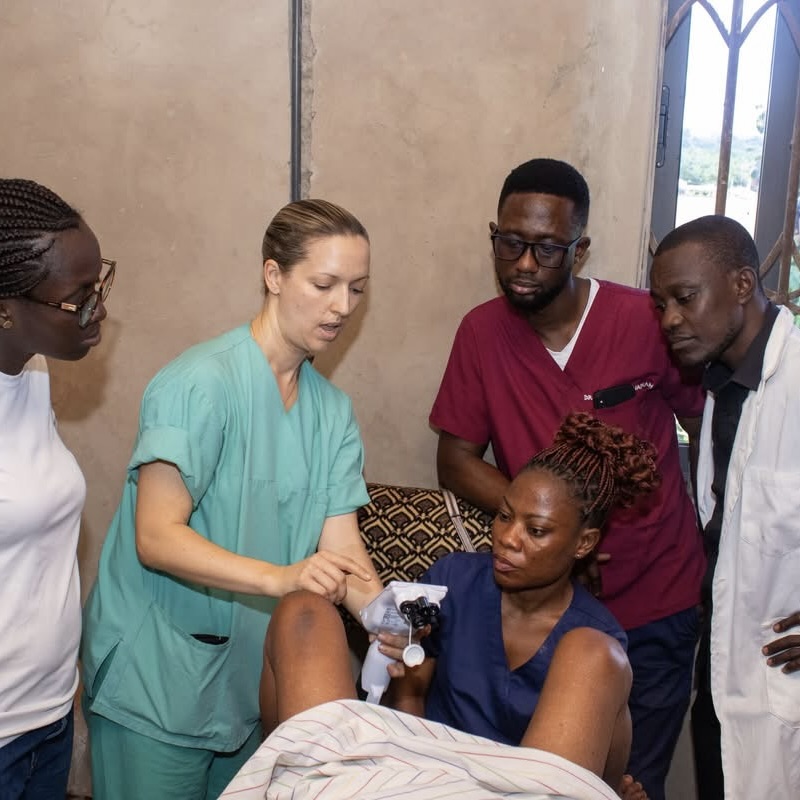
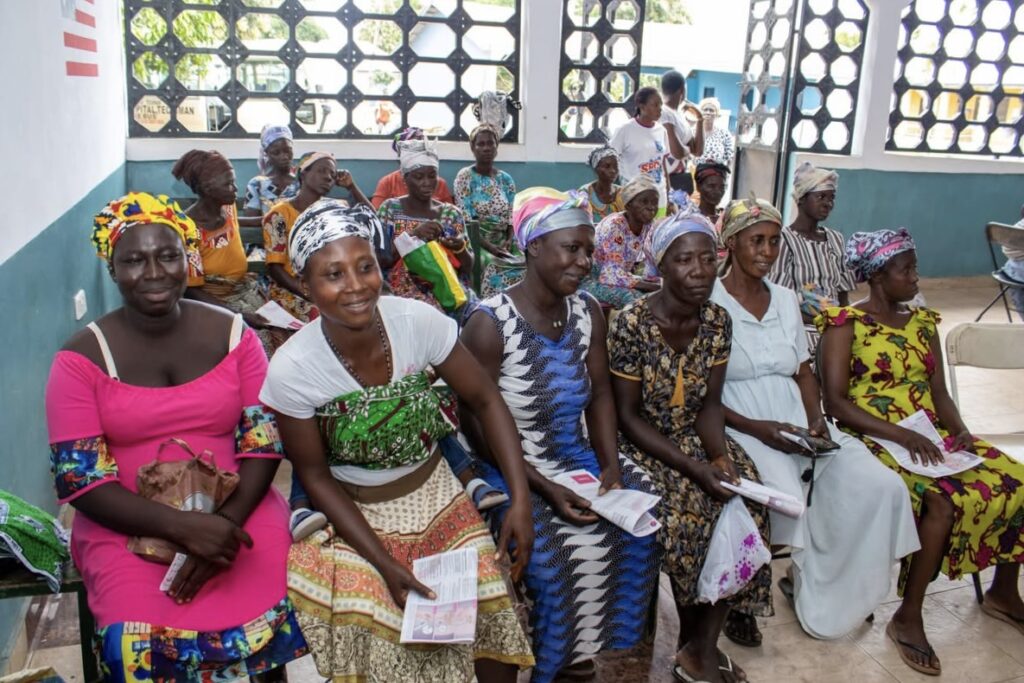
Outreach and Impact
During the first week, patients enrolled in the ongoing cervical cancer study were examined and treated. A major success became visible: the midwives trained over the past two years now perform cervical cancer screening and colposcopy independently and with great competence.
In the second week, the Austrian and local teams carried out a five-day outreach program in three rural communities – Atebubu-Amantin, Nsuta, and Abease – where access to medical care is limited. Together they screened around 1,500 women and provided consultations for various gynecological problems.
This mission marks an important milestone: in less than two years, a fully independent cervical cancer screening unit has been established at Holy Family Hospital, now extending care to women even in remote areas.
September 2025: New Ultrasound Machine for Obstetrics & Gynecology
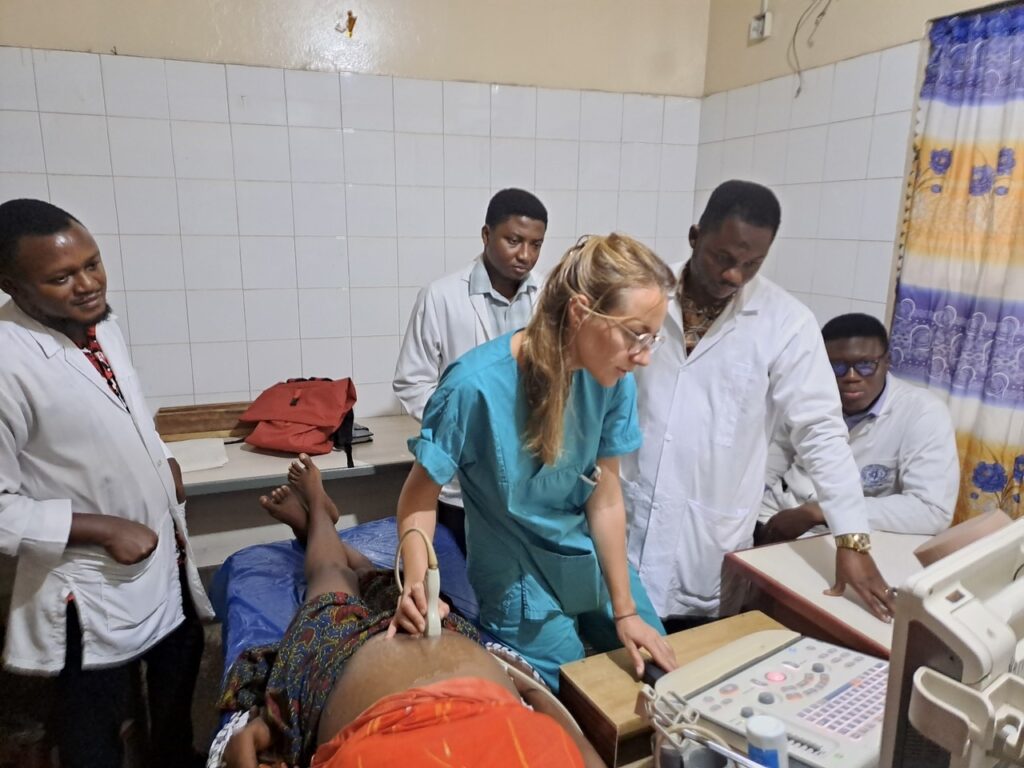
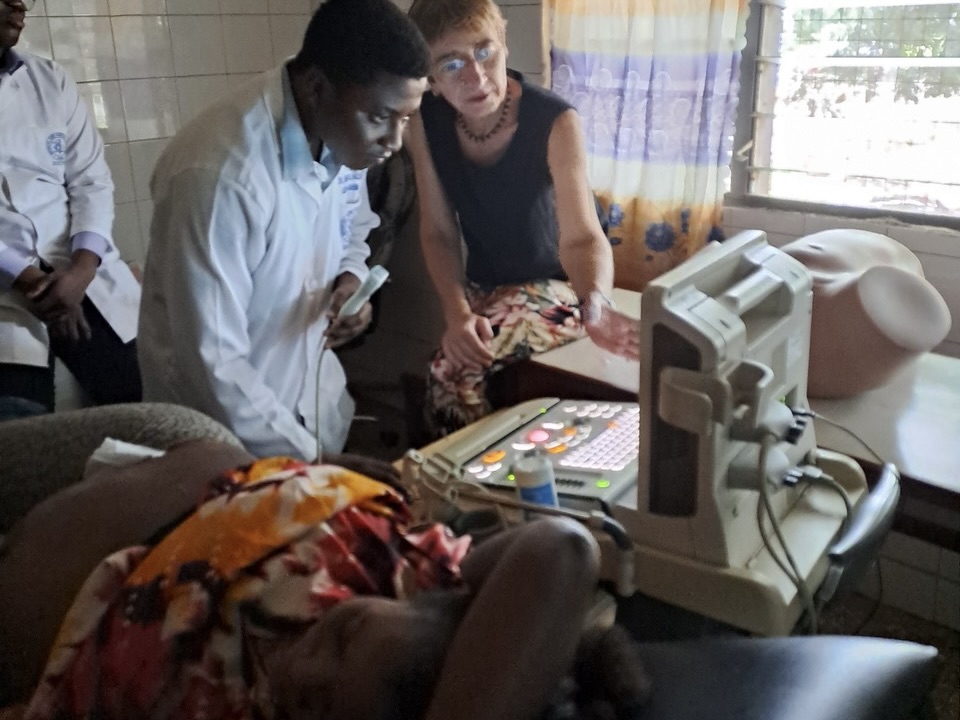
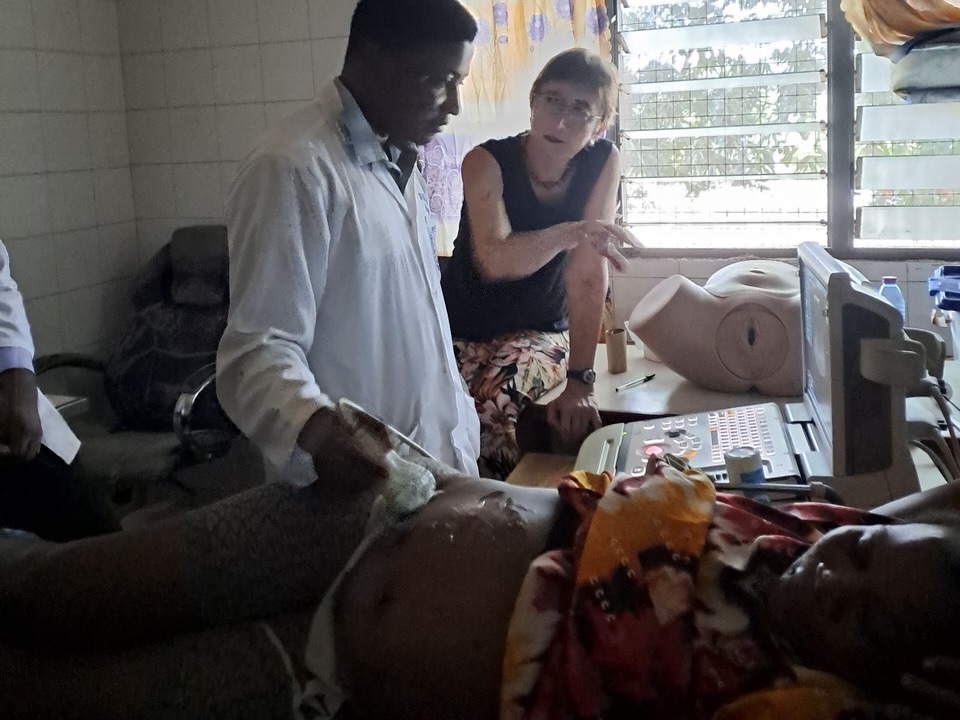
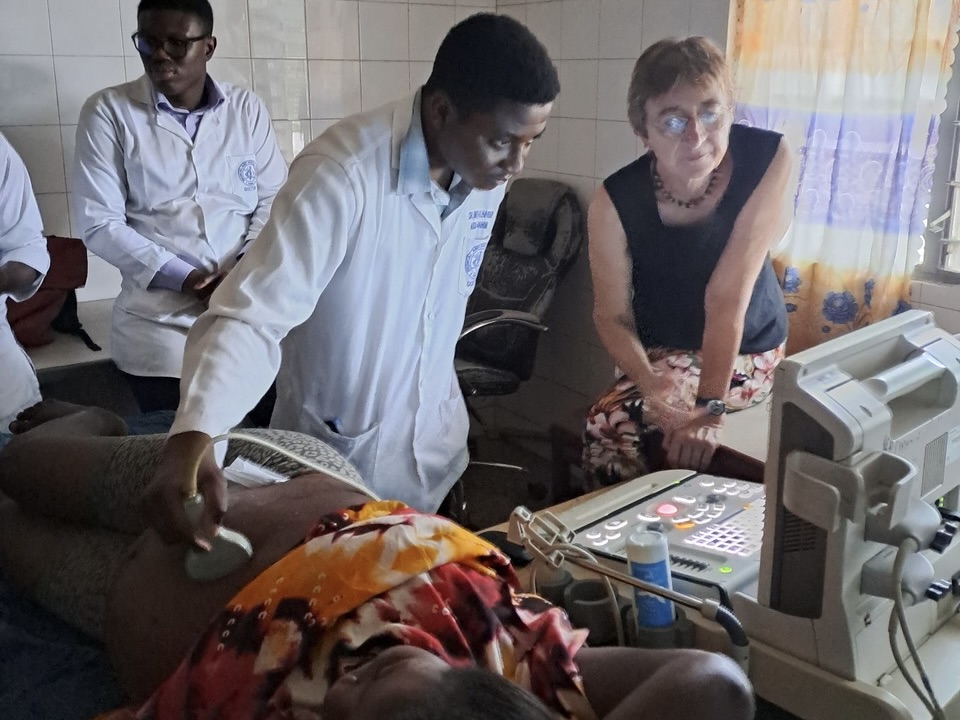
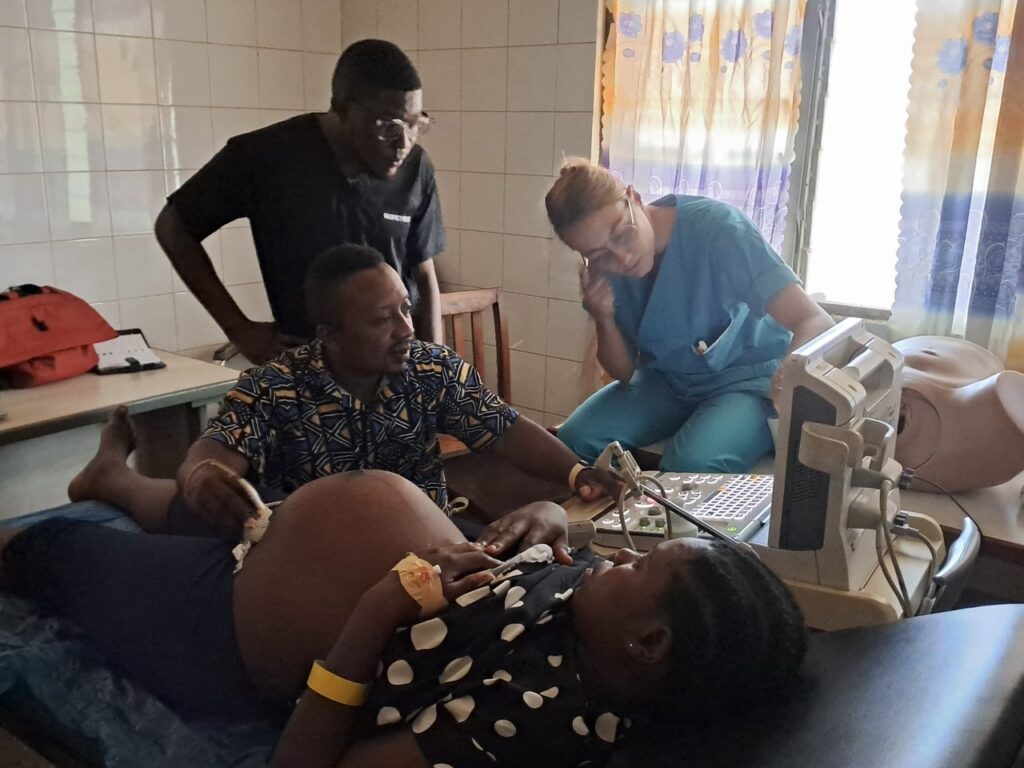
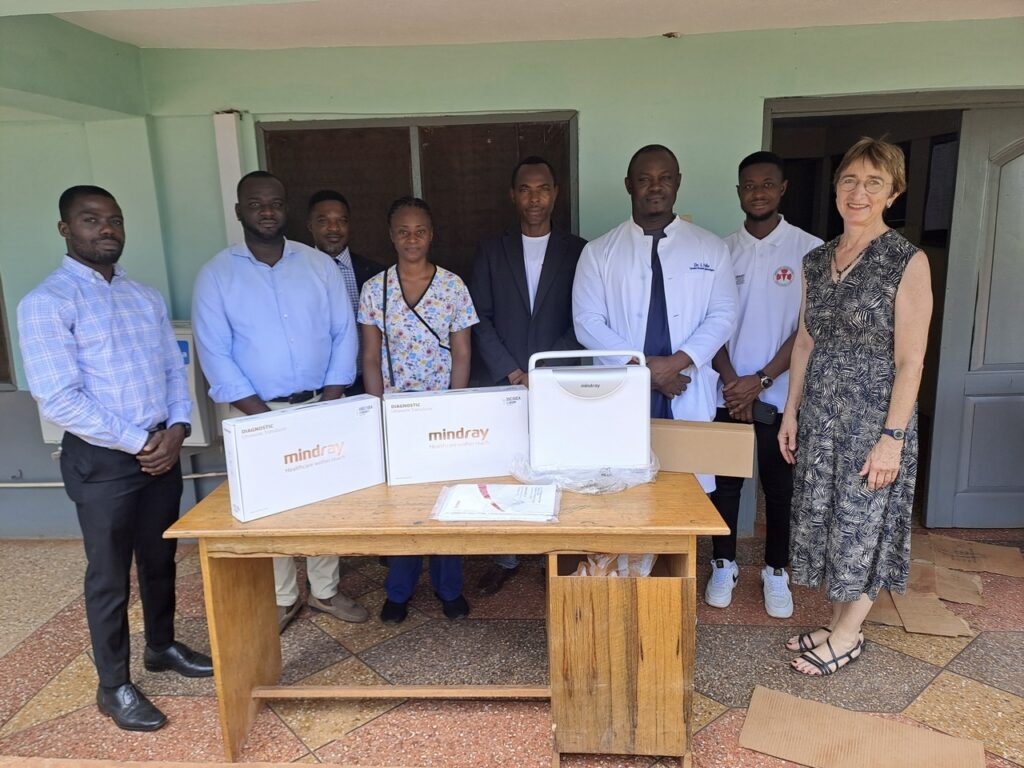
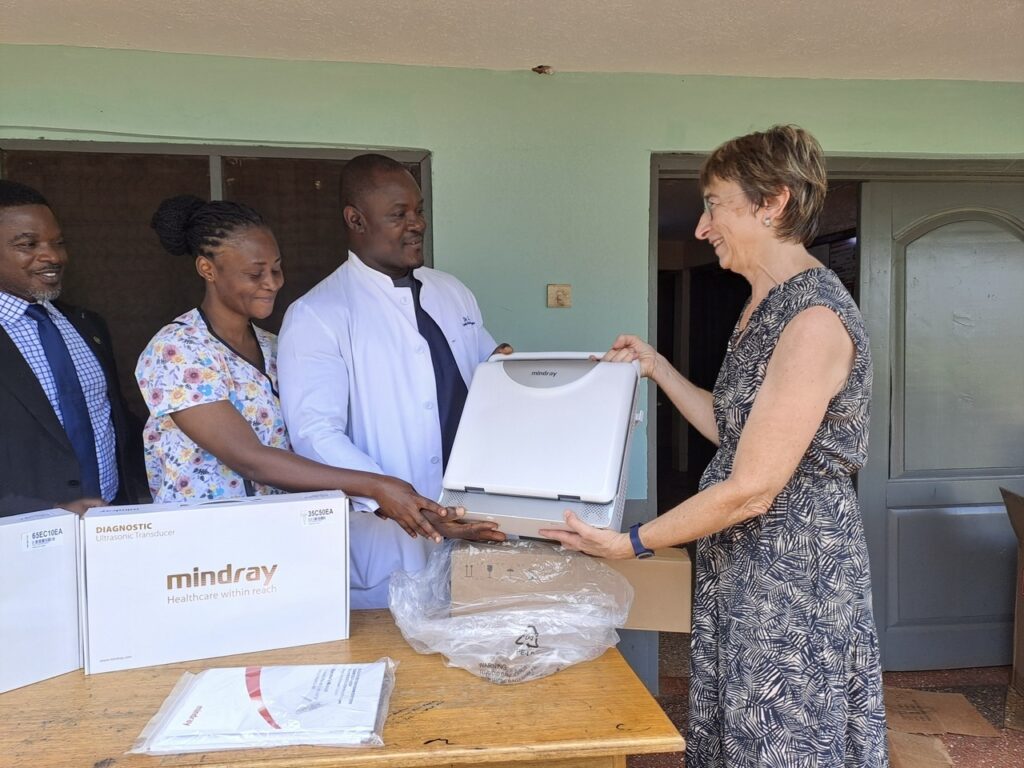
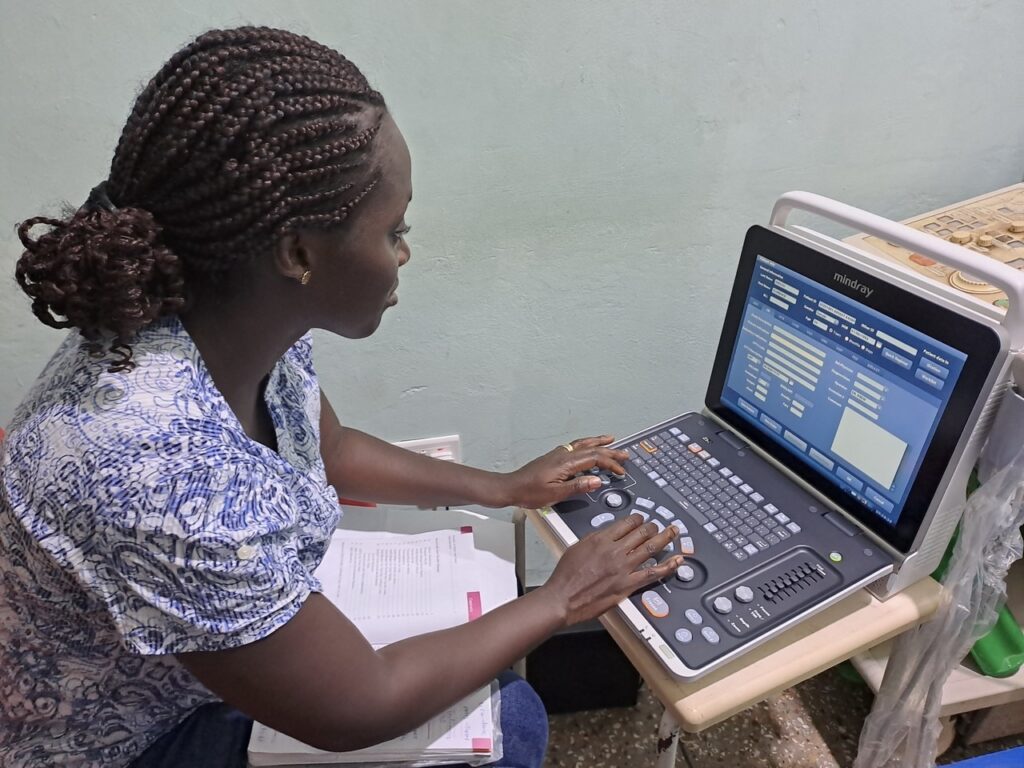
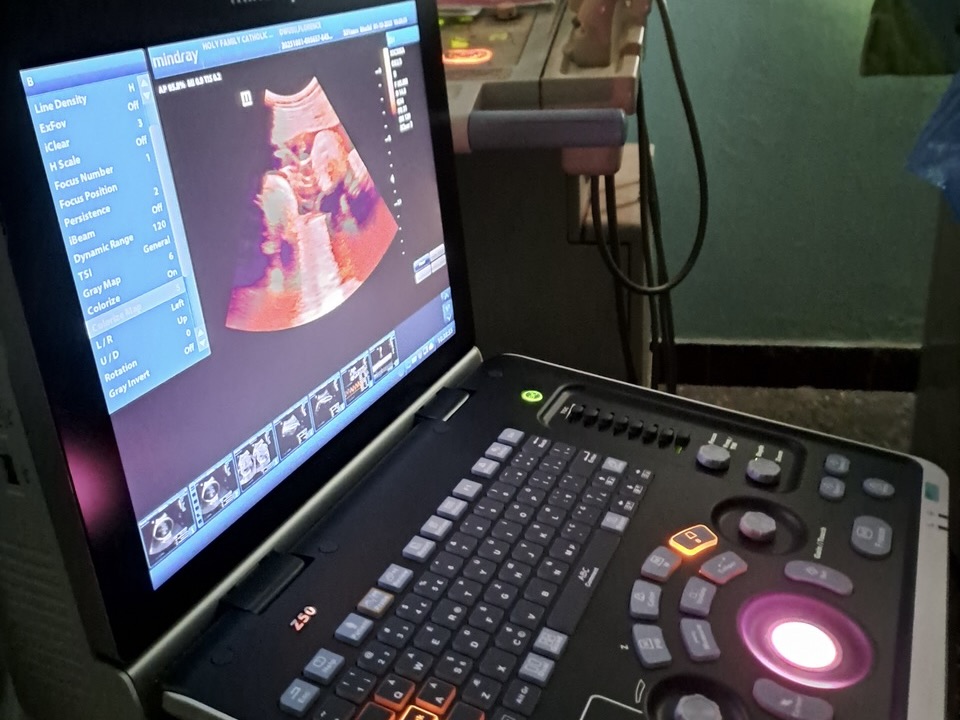
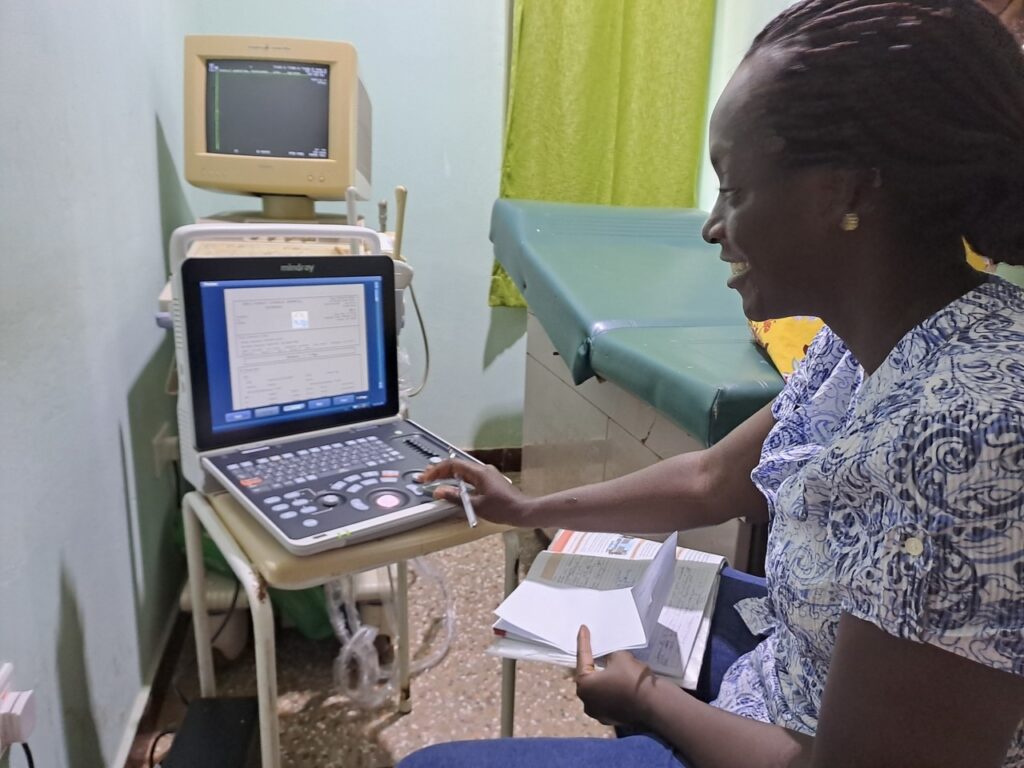
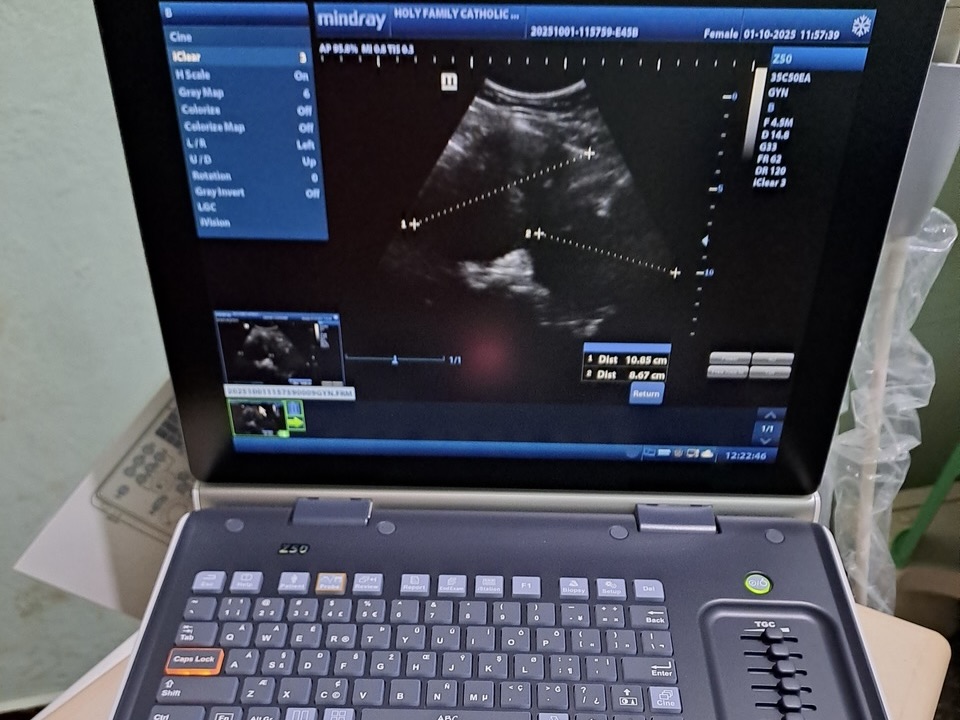
In early 2025, under the leadership of Dr. Ibrahim Friko, Head of the Department of Obstetrics & Gynaecology at Holy Family Hospital Techiman, the need for a second ultrasound machine was recognized to ensure reliable diagnostics in the triage area. A suitable multifunctional model available on the Ghanaian market was selected after careful evaluation.
During the visit of an MSIP e.V. team from Würzburg in September 2025, the urgency of this need became clear once again, as the only functioning ultrasound device had broken down and required repair. Through a generous donation, MSIP e.V. was able to provide a new Mindray Z50 ultrasound machine with two probes. The device was delivered on September 30 and put into use the following day.
The new ultrasound machine strengthens diagnostic capacity in obstetrics and gynaecology and contributes to safer, faster, and more reliable patient care at Holy Family Hospital Techiman.
June 2025: Empowering Hope and Healing in Techiman
Establishing the Breast Cancer Unit
In December 2023, Holy Family Catholic Hospital in Techiman took a significant step toward improving women’s health by opening a dedicated Breast Cancer Unit. The project was made possible through the generous support of Medical Support in Partnership (MSIP), Hamburg, Germany. The unit was created to close the gap in cancer care across the Bono East Region by offering comprehensive, accessible, and compassionate services to women in need.
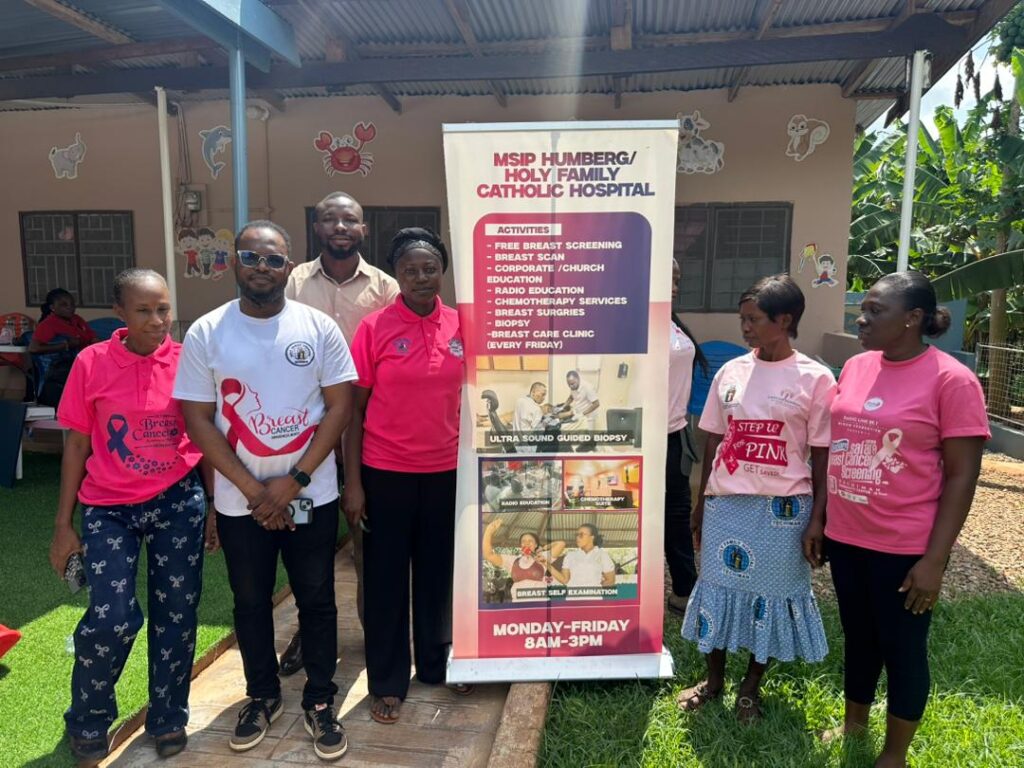
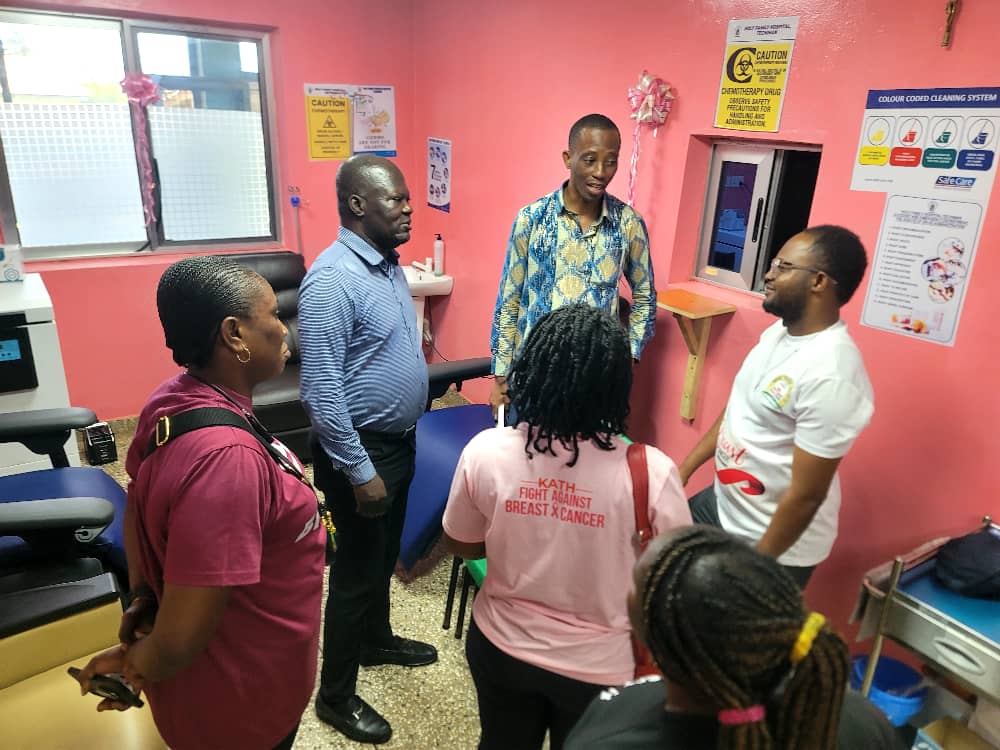
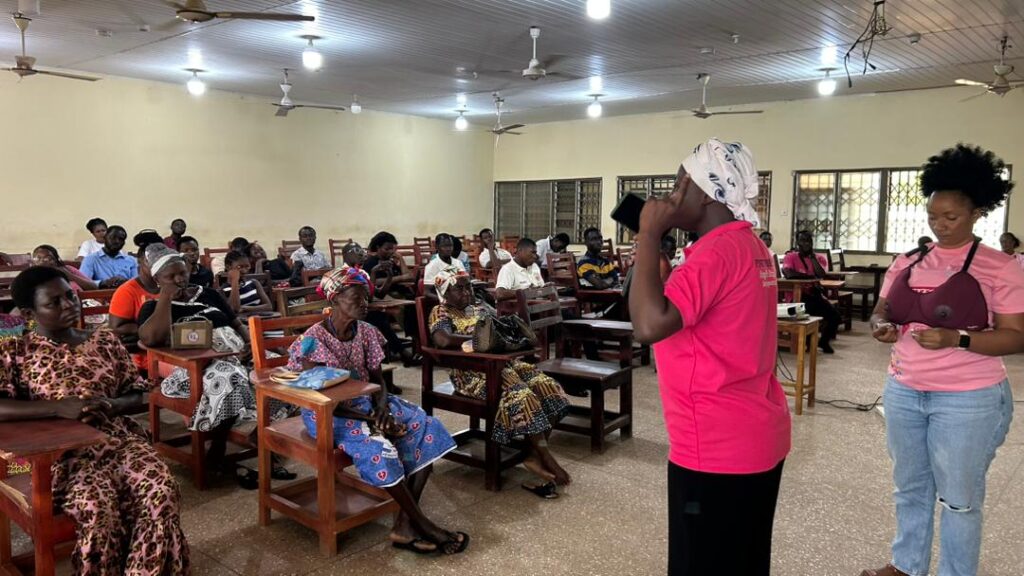
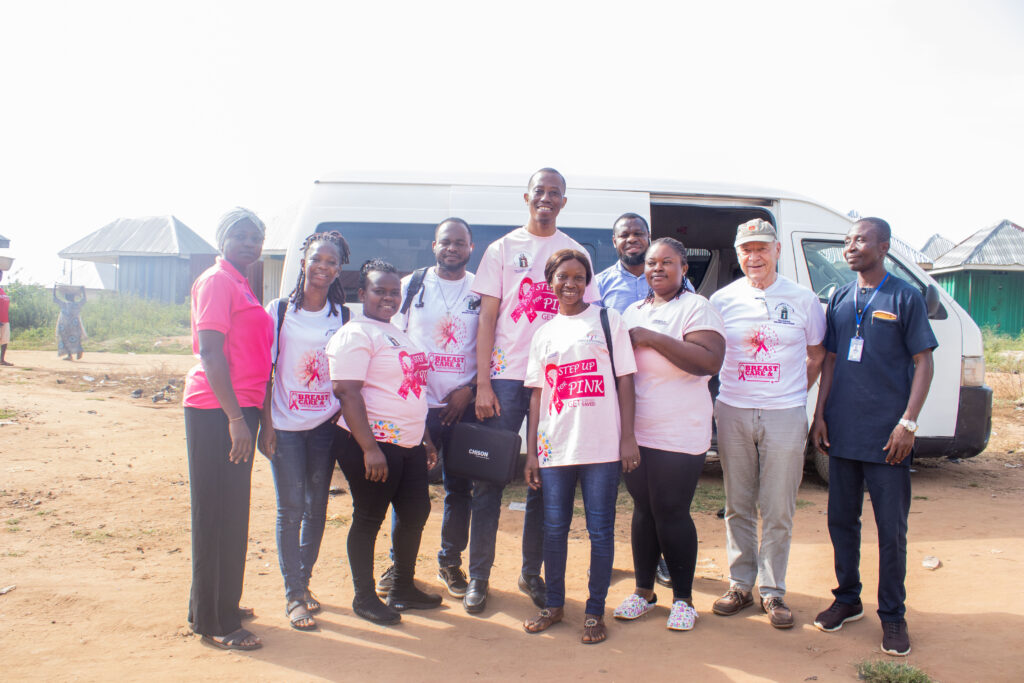
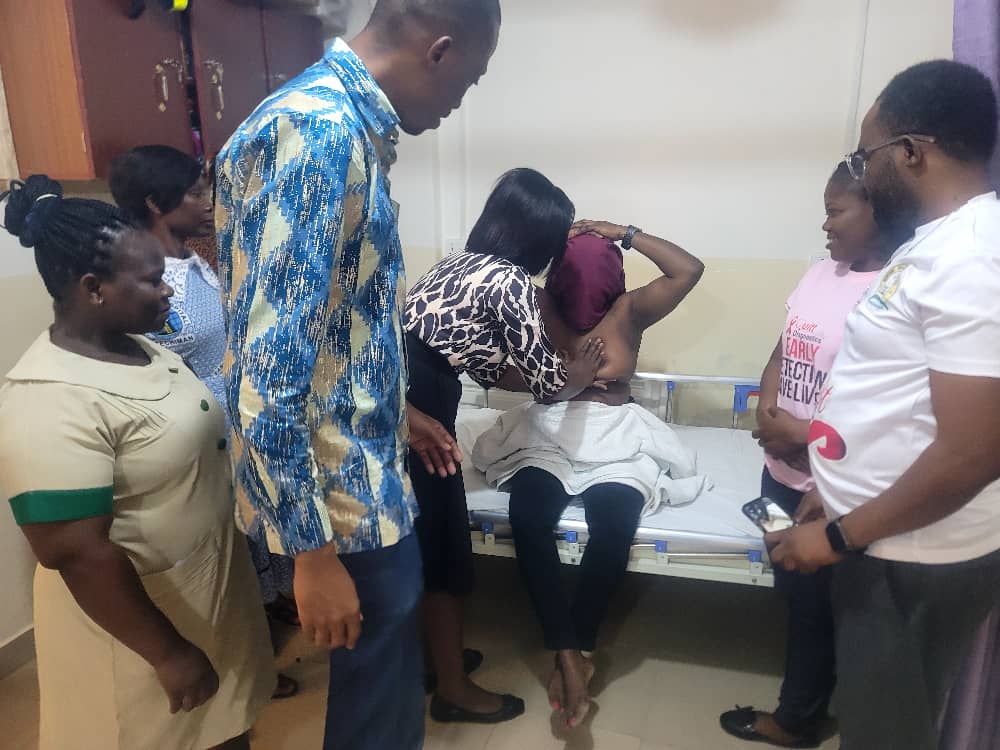
Leadership and Vision
The Breast Cancer Unit is headed by Dr. Kingsley Bosompem, Senior Specialist and General Surgeon, who also serves as the Lead for Breast Care at Holy Family Hospital. Under his guidance, a committed multidisciplinary team provides patient-centered care grounded in professionalism and empathy.
“Our goal is not only to treat breast cancer but to walk with our patients every step of the way — from awareness and diagnosis to treatment, recovery and hope.”
— Dr. Kingsley Bosompem, Senior Specialist and Head, Breast Cancer Unit
Progress and Impact
Between January and June 2025, the Breast Cancer Unit made measurable progress in expanding access to breast health services. During this period, 499 patients attended the Breast Care Clinic, 411 women received screening services, 54 core biopsies were performed, and 243 chemotherapy sessions were safely administered. Several successful breast surgeries — including mastectomies and lumpectomies — have restored both health and confidence.
With continued support from Prof. Susanna Hegewisch-Becker, Medical Oncologist and MSIP partner in Hamburg, the unit has also secured funding to offer free diagnosis and treatment to 150 underserved women in the Techiman and Bono East Region — a major step forward for equitable cancer care.
Breast cancer is treatable, especially when detected early. The Holy Family team remains committed to raising awareness, breaking stigma, and providing hope — one patient at a time.
May 2025: Austrian Anesthesia Team Returns to Ghana to Advance Sustainable Medical Training
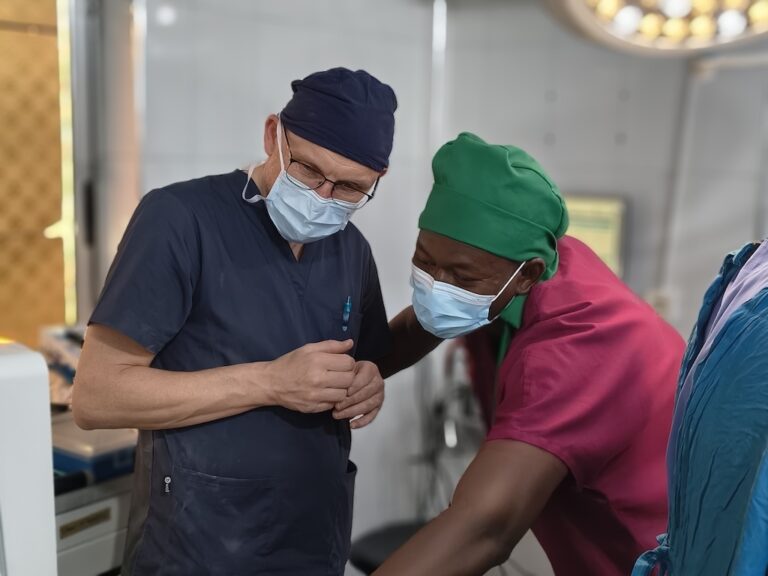
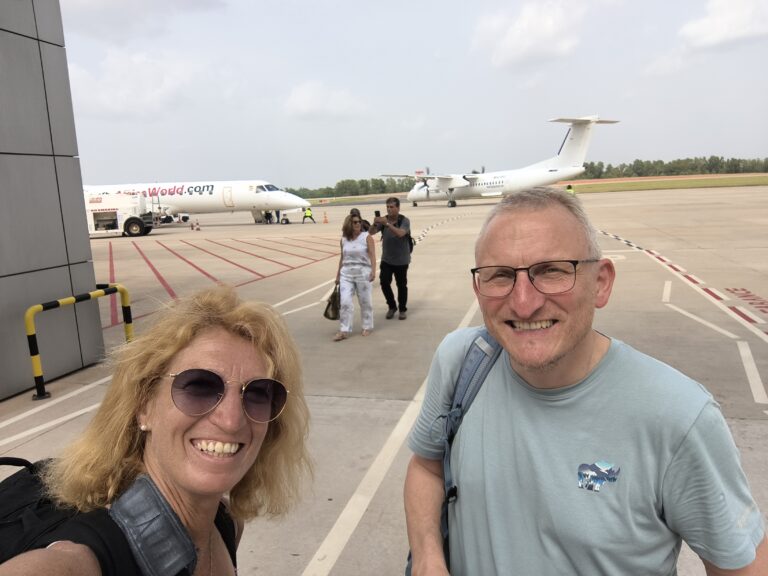
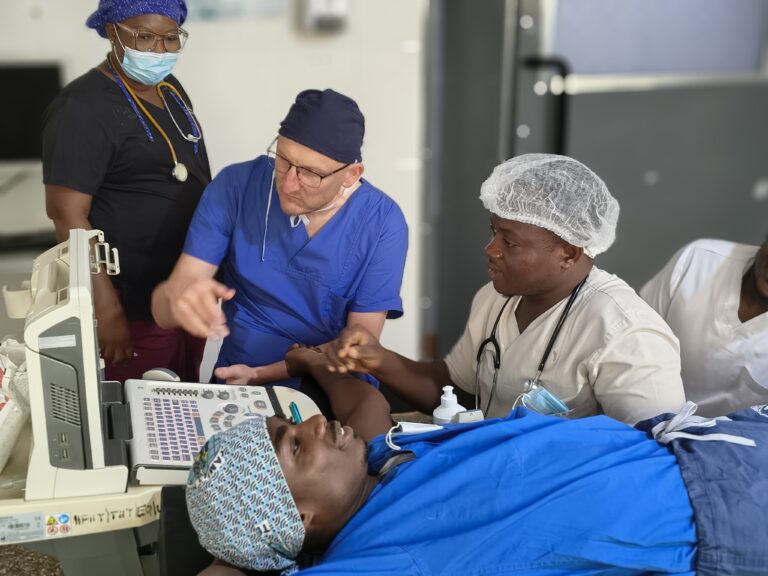

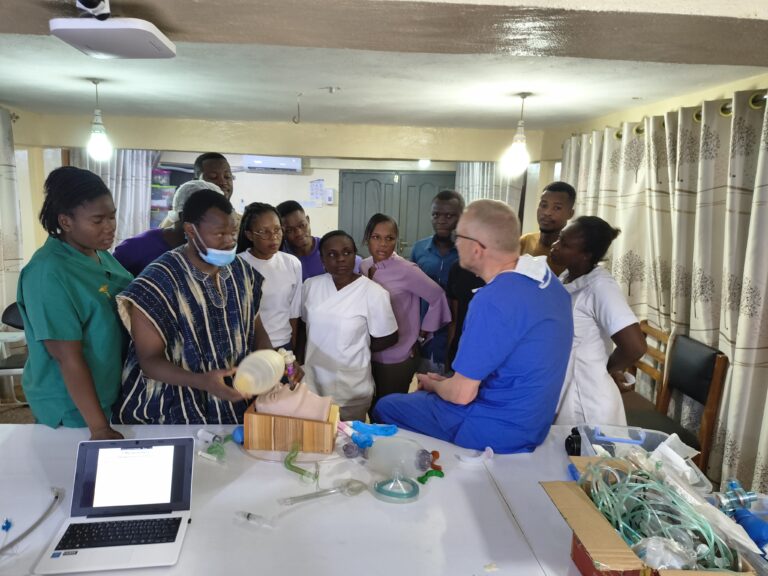
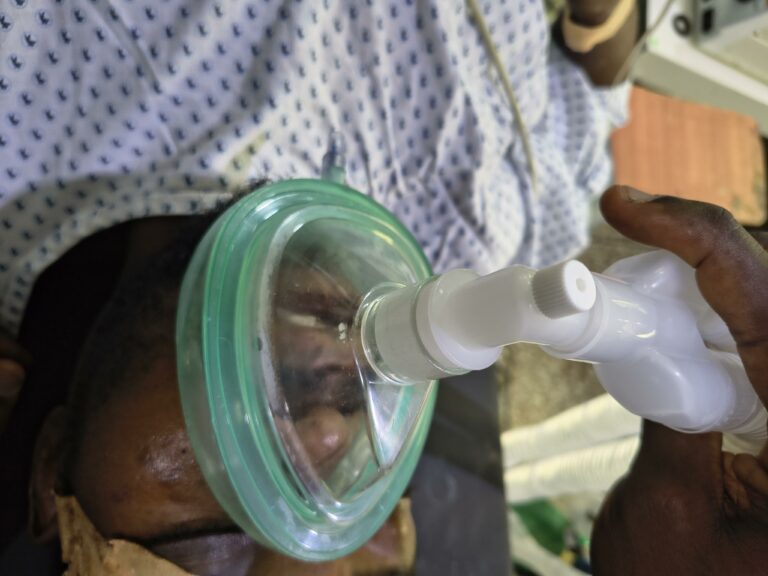
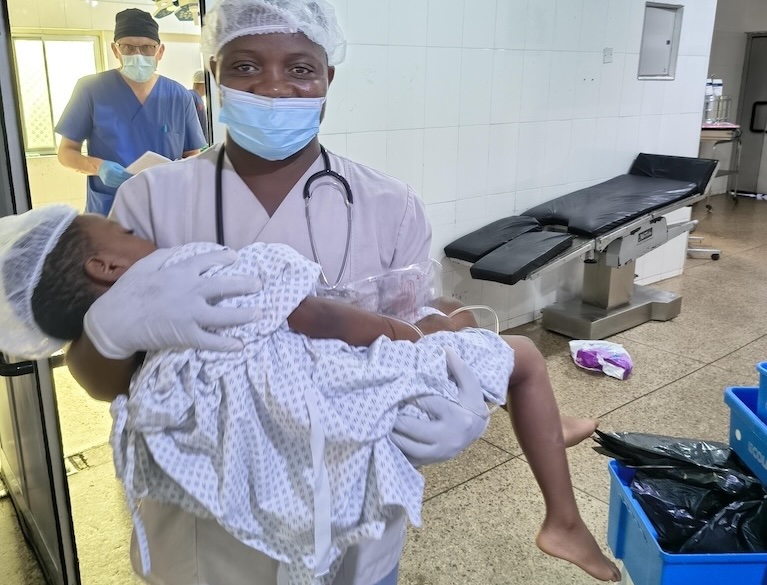
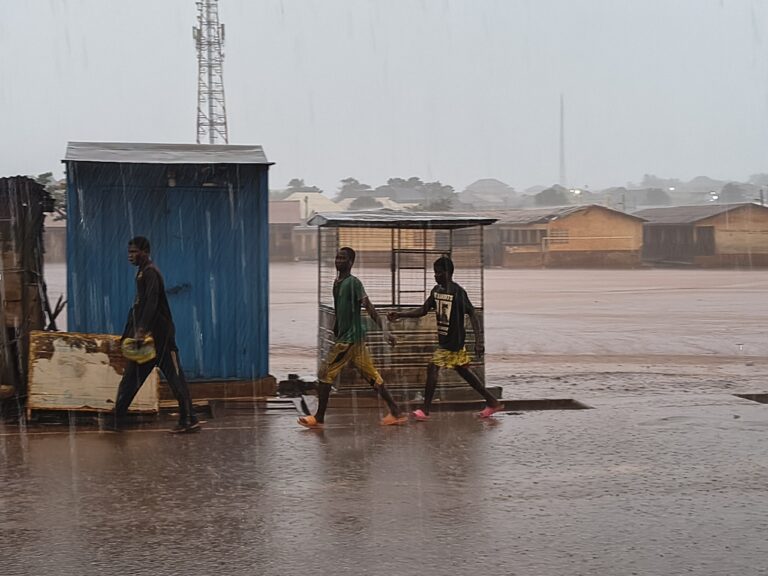
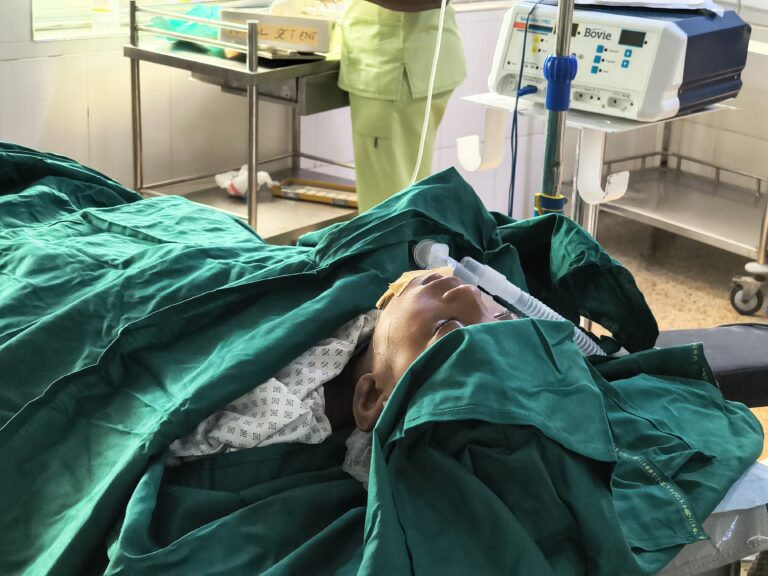
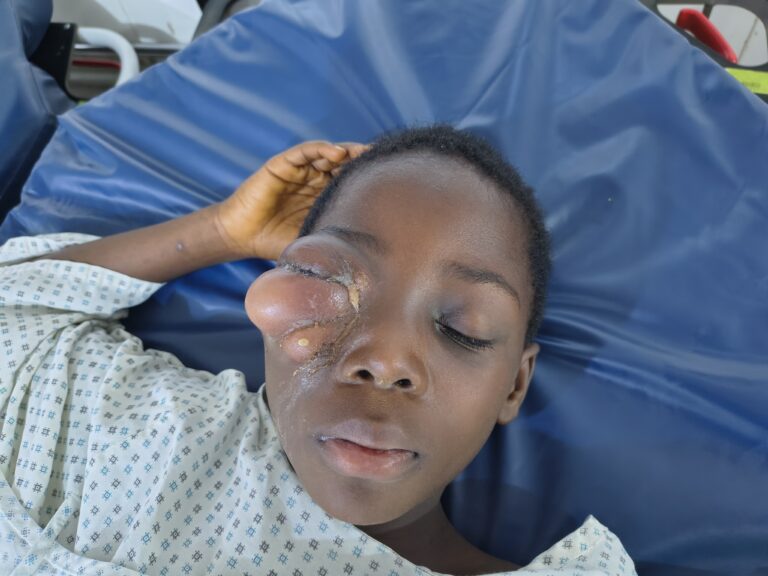
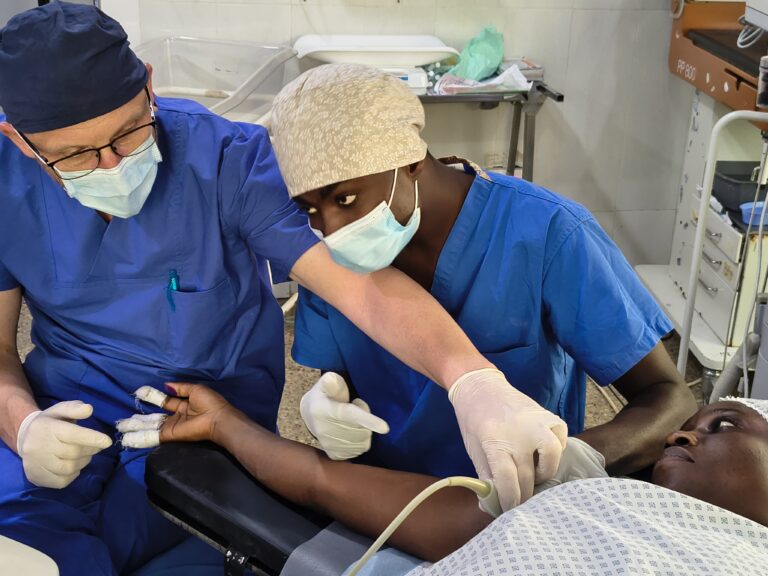
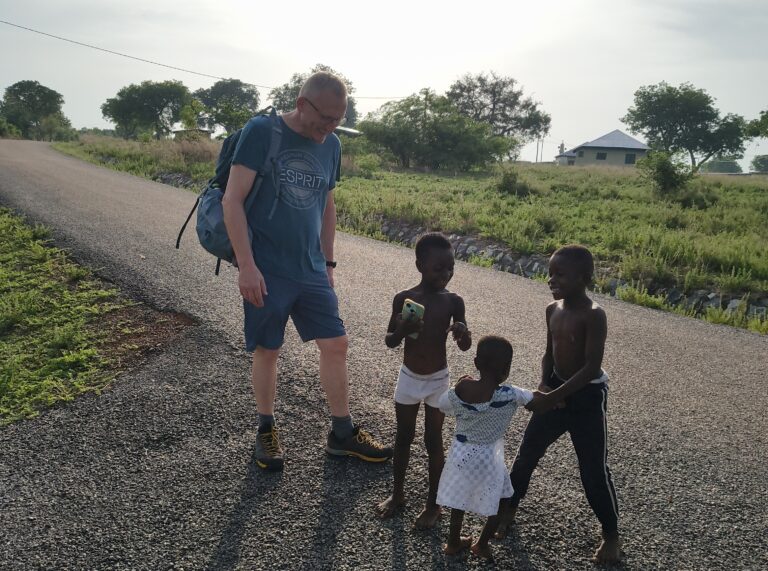
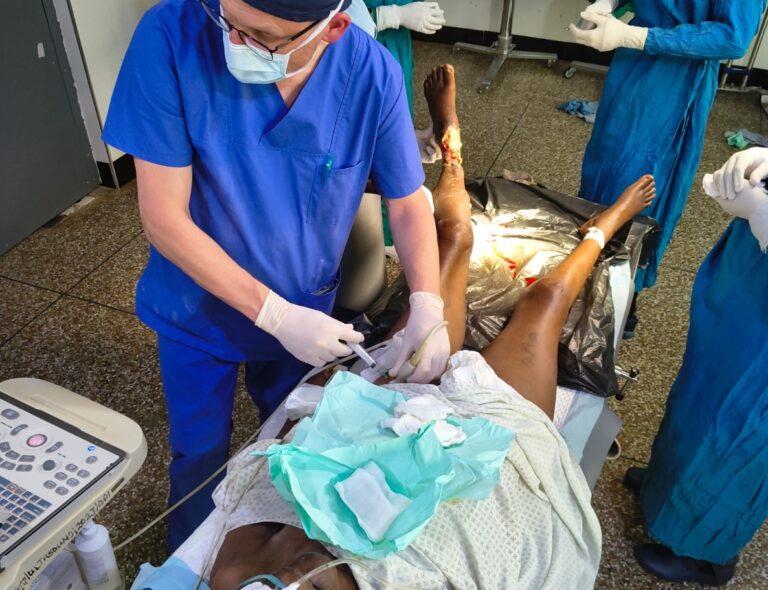
Arrival, Reflection & Role Definition in Techiman
Upon arrival in Techiman, the Austrian anaesthesia team received a warm welcome and was quickly integrated into daily clinical routines. Familiar faces and long-standing partnerships laid the foundation for trustful cooperation.
In parallel, the team entered a phase of internal reflection: What is our exact contribution? How can our work be impactful and sustainable?
This process was driven by high expectations from local staff and clearly visible medical needs. The team reviewed its previous goals in light of current challenges. The result was a clarified mission: bridging clinical support with system strengthening. This defined a clear and focused direction for the days ahead.
Introducing Regional Anaesthesia & Evaluating Clinical Practice
One major focus of this mission was the practical introduction of regional anaesthesia techniques. These methods were demonstrated and taught in a hands-on manner, with particular emphasis on ultrasound-guided nerve blocks.
Special attention was given to hygiene protocols and correct use of materials under resource-limited conditions. The team also conducted a detailed evaluation of the operating theatre setup. Gaps in workflow, hygiene routines, and documentation were identified and discussed with local staff.
All recommendations were developed collaboratively, adapted to local realities, and aimed at feasible improvements. This dual approach—training and system review—proved to be an effective model for future cooperation.
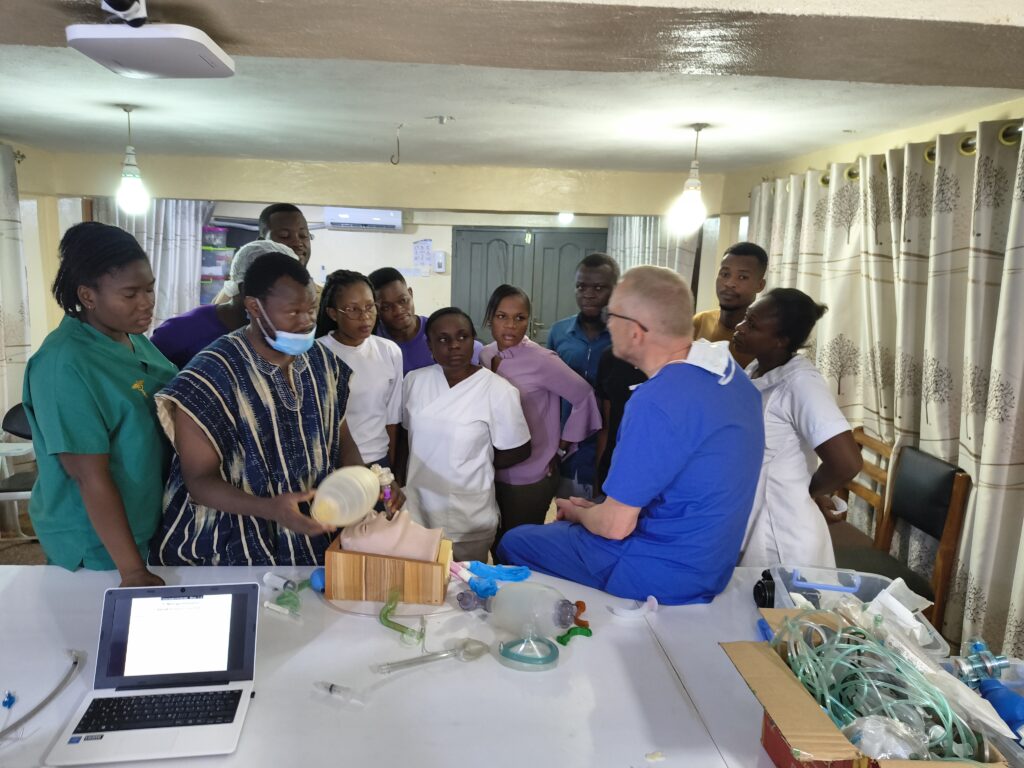
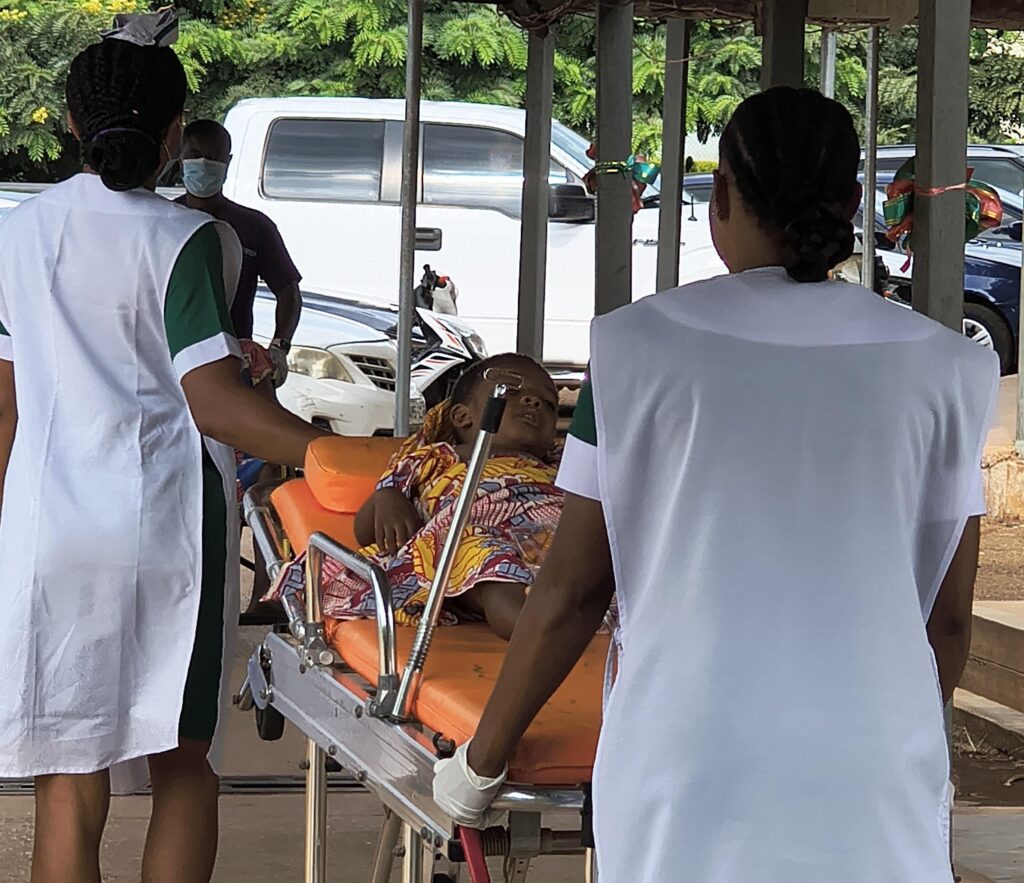
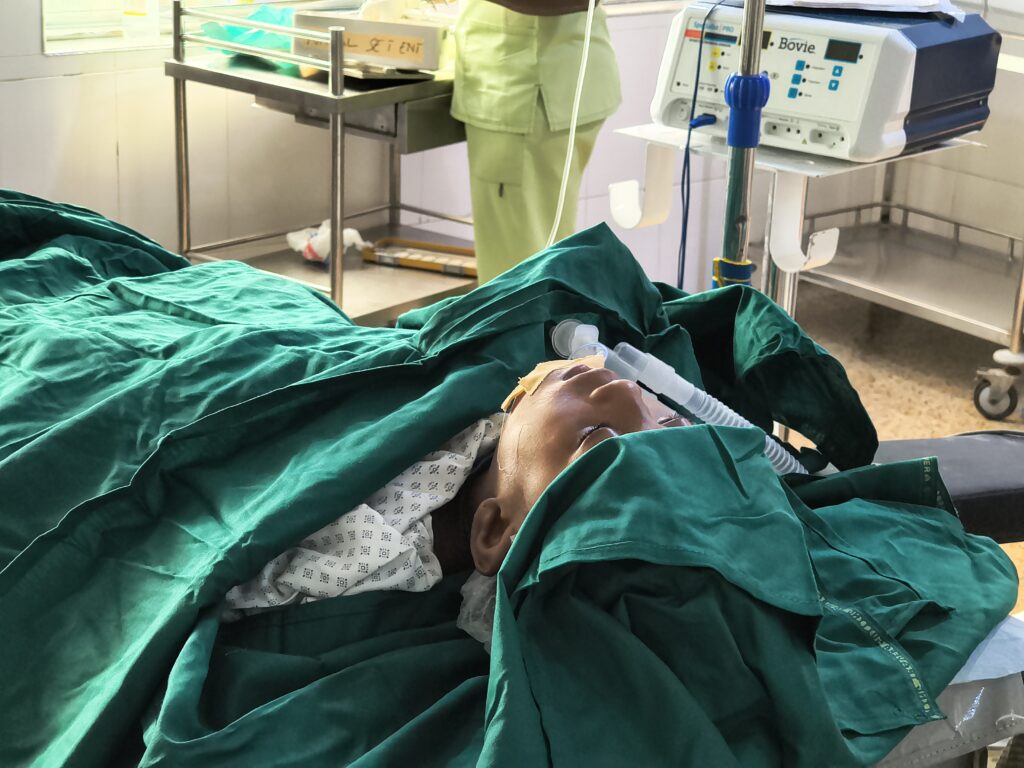
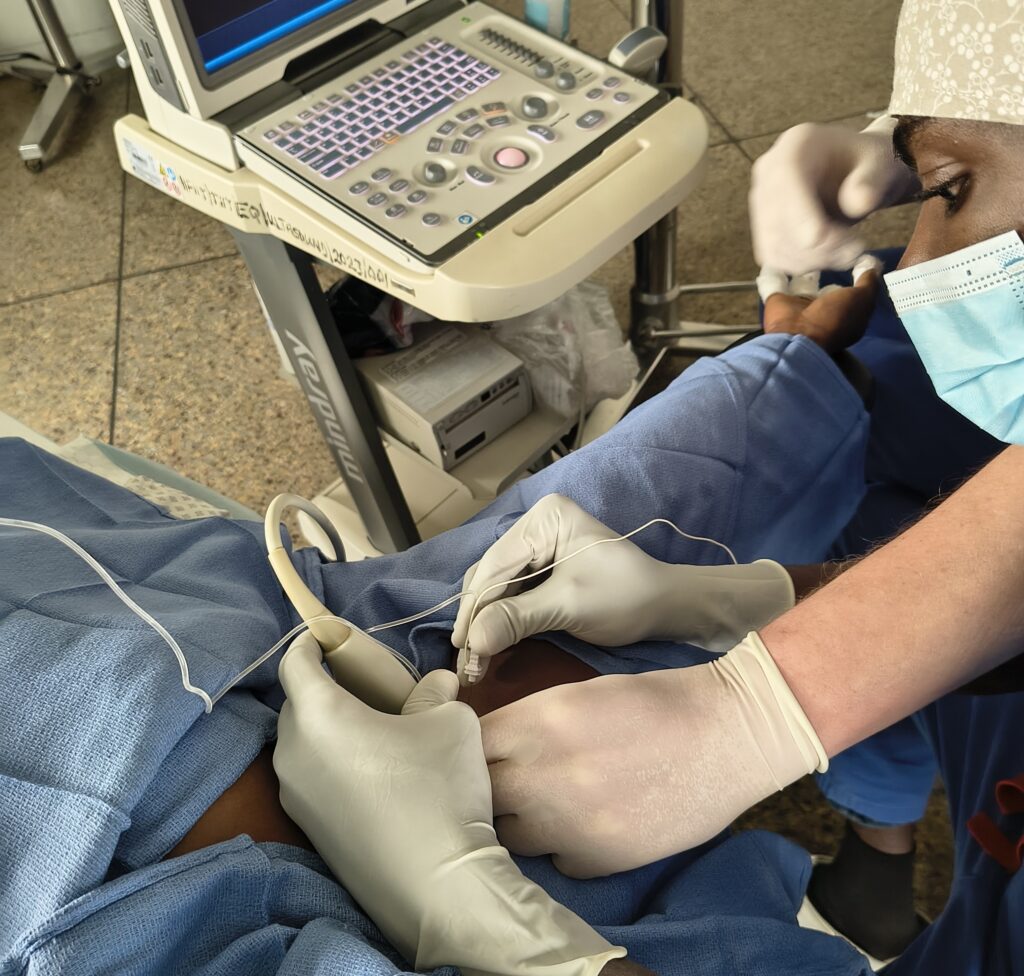
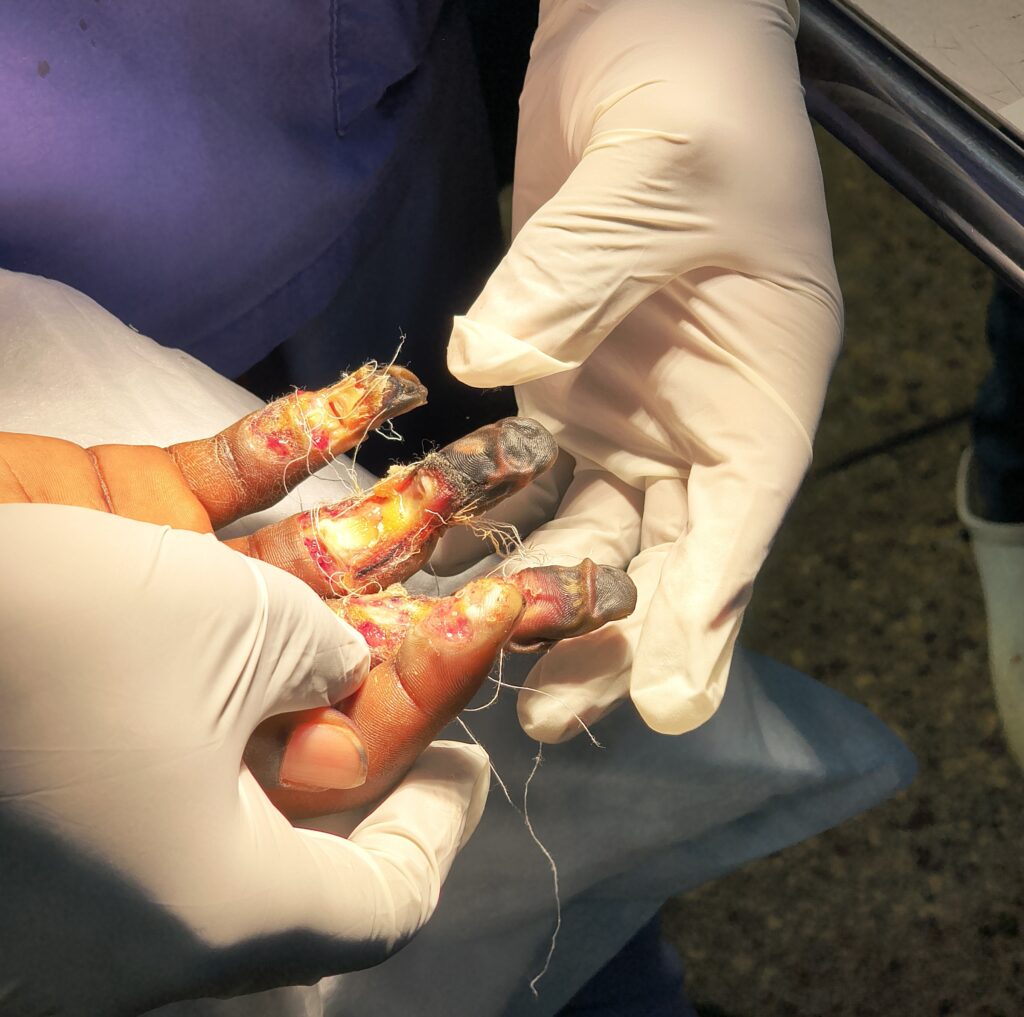
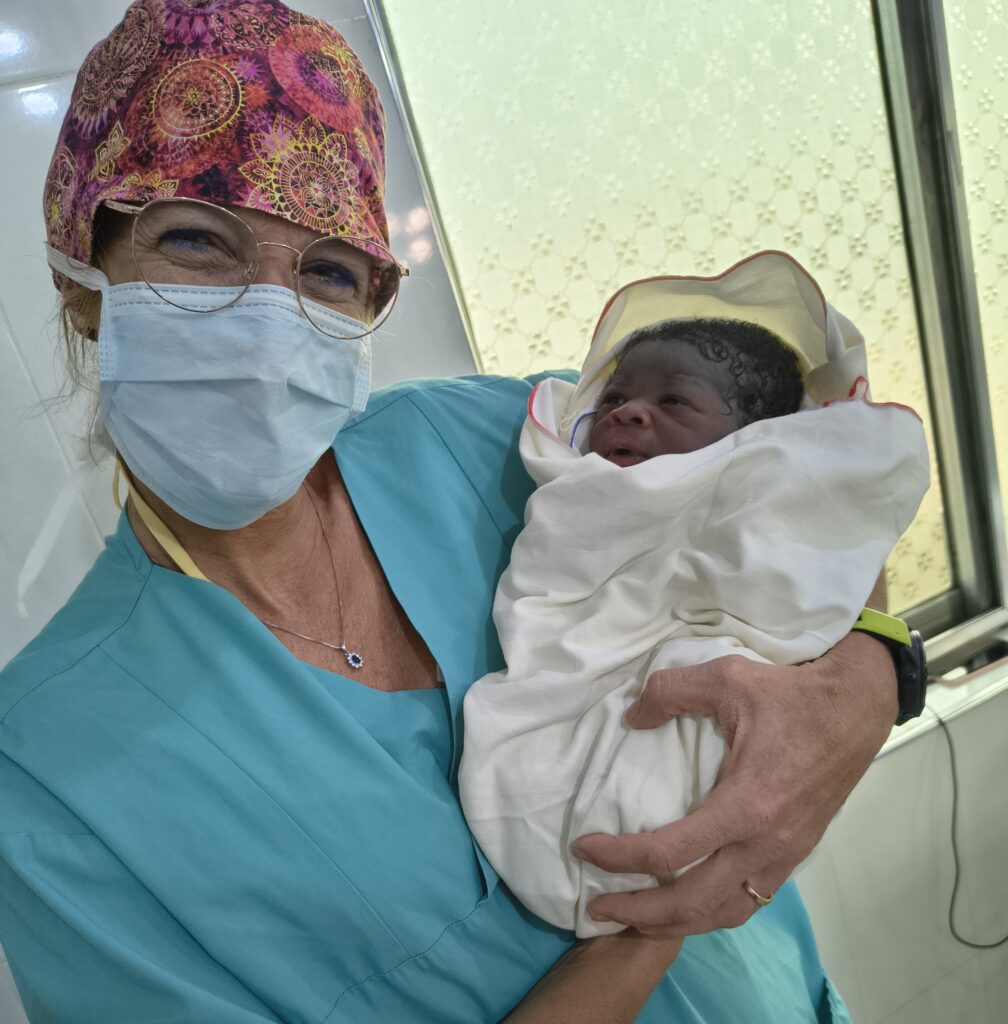
Facing Healthcare Realities in Ghana
This phase of the mission addressed the harsh realities of Ghana’s healthcare system. The team moved beyond hands-on support to ask: What is our mission? What structures exist? Where can we contribute to sustainable impact?
The healthcare situation remains deeply concerning: many patients face financial barriers and lack access to essential treatment. Severe infections, untreated fractures, and premature births often go without care due to missing equipment or medication. Even children sometimes endure pain without proper relief.
Discussions with local staff revealed that basic insurance covers very little. Families often have to cover the cost of critical care themselves – an overwhelming burden for many.
The team realized that true support requires more than expertise. It requires understanding systemic barriers and working within the limits of local realities.
March 2025: Kiel UKSH Team Supports Gynecological Training in Ghana
Ten Days of Impact: UKSH Supports Gynecology and Obstetrics in Ghana
In March 2025, a dedicated team from UKSH Kiel traveled to Techiman, Ghana, for a ten-day exchange at the Holy Family Hospital.
This article highlights their joint efforts to advance training in minimally invasive surgery and improve gynecological and obstetric care in the region.
Through surgical collaboration, hands-on workshops, and shared planning sessions, the initiative marked an important step toward sustainable medical development.
Click the article to discover how international cooperation can support lasting improvements in women’s health.
February 2025: Ultrasound Training at Holy Family Hospital, Techiman
Arrival & Warm Welcome in Techiman
After a long journey with delays and an overnight stop in Amsterdam, our team arrived safely in Accra and continued on to Techiman. Upon arrival, we were warmly welcomed by the local hospital team and introduced to the leadership, including Bishop Afrifah-Agyekum and Dr. Friko. The friendly reception set the tone for the days ahead and reflected the strong local commitment to professional exchange and collaboration.
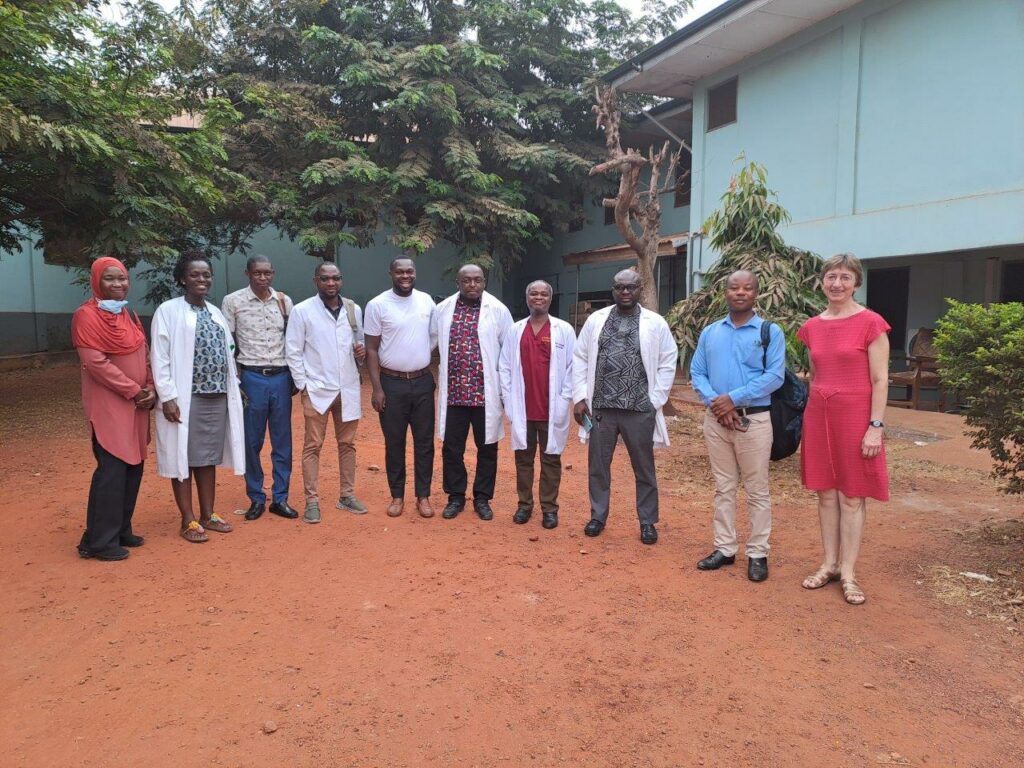
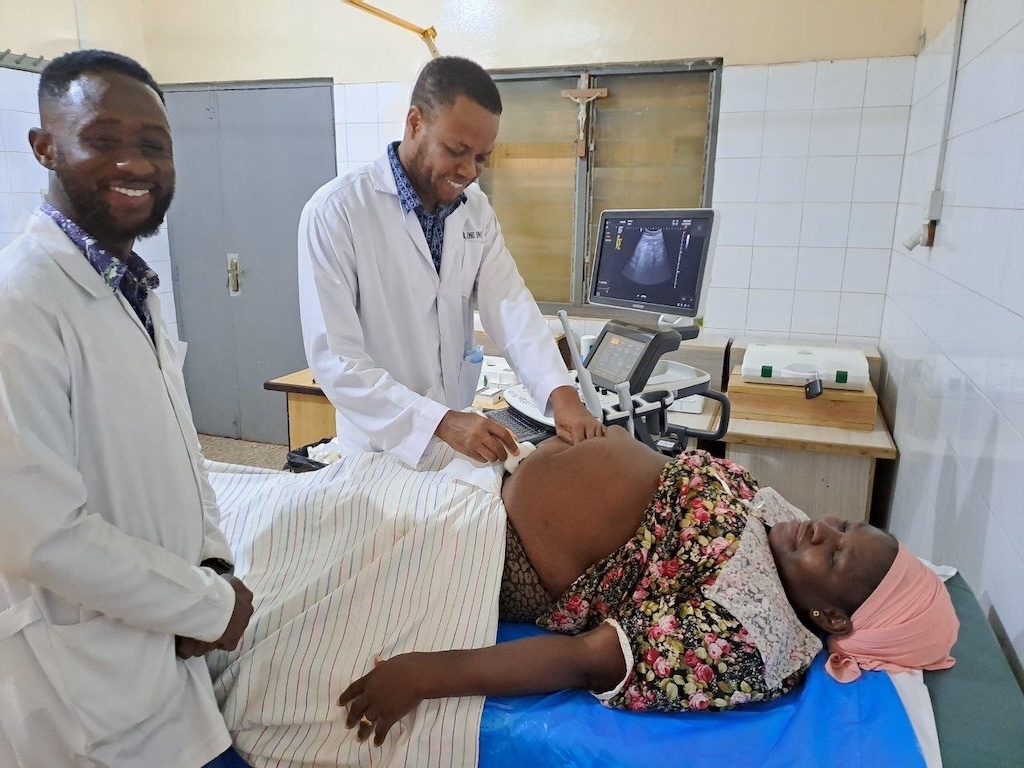
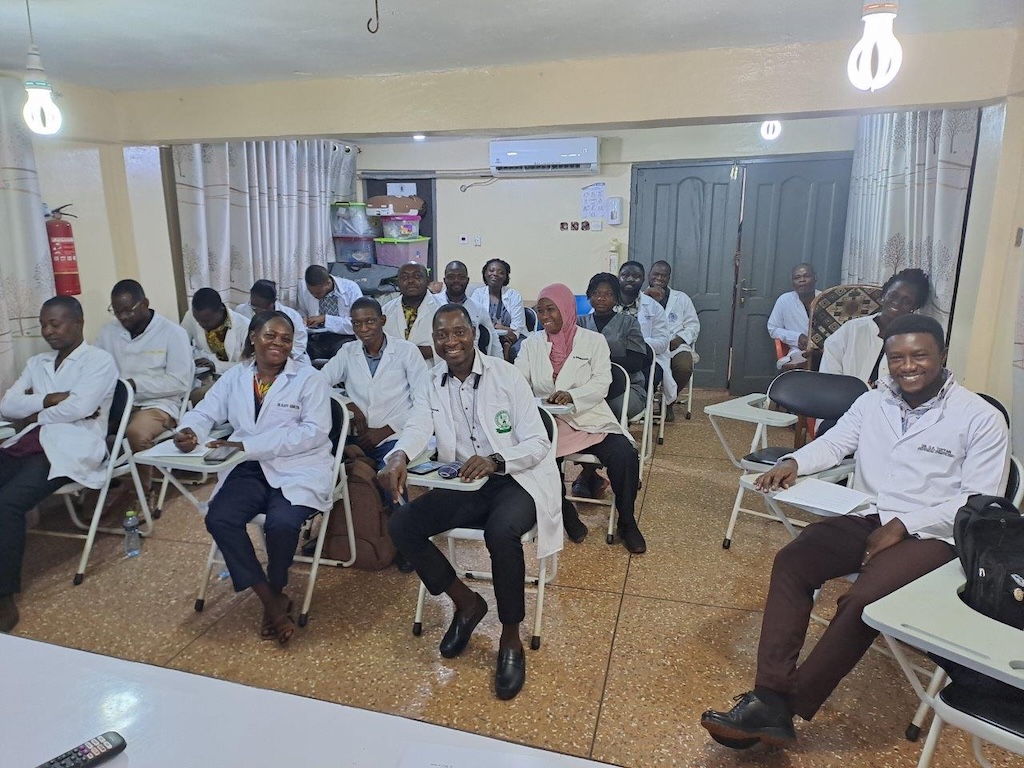
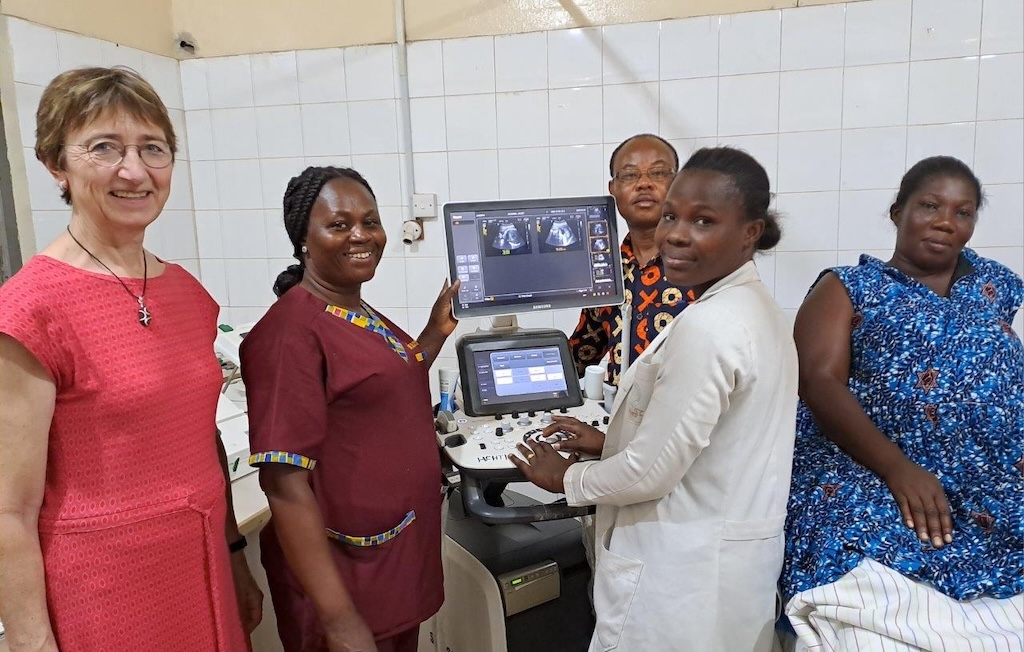
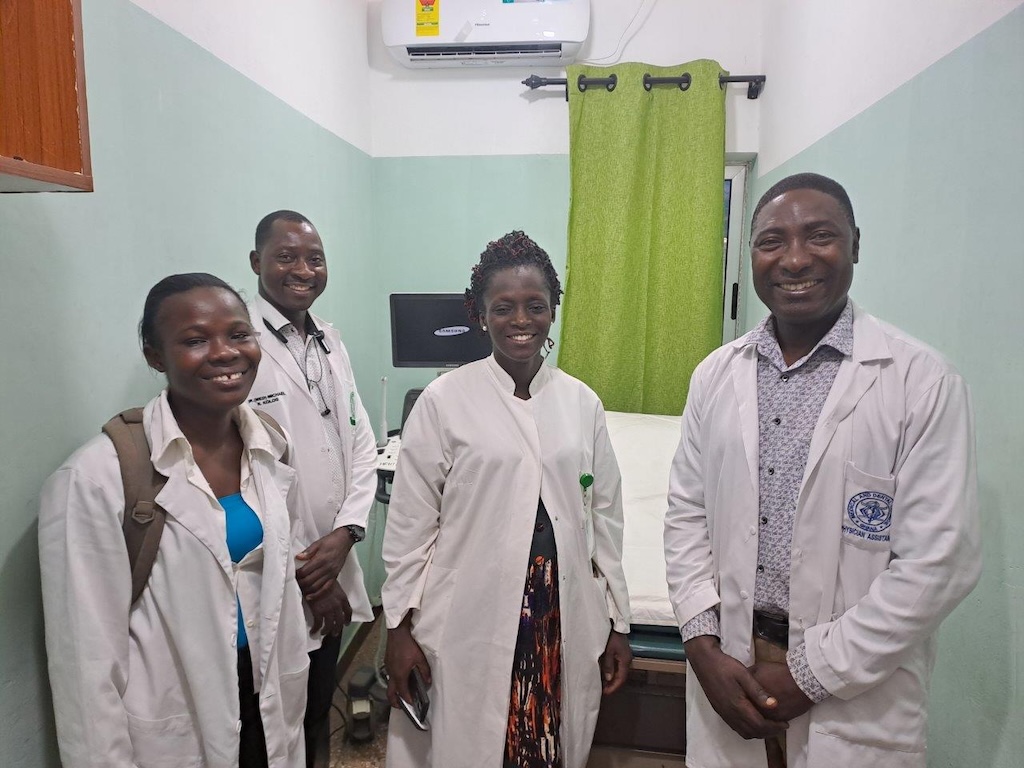
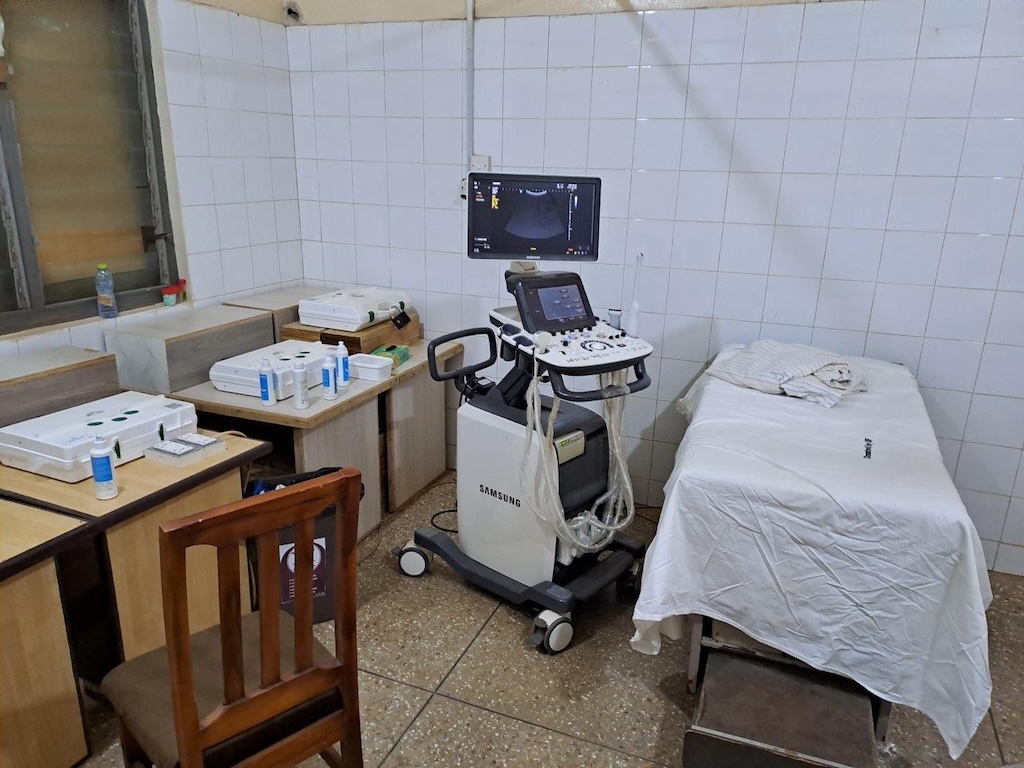
Training Sessions & Daily Lectures
Throughout the course, participants attended focused ultrasound lectures every morning, followed by small-group practical sessions in the afternoon. The training covered obstetric basics, gynecological diagnostics, and breast ultrasound, with hands-on experience using real patient cases.
Simulation models were used to practice techniques before applying them in clinical settings. The high level of attention and motivation among doctors, midwives, and nurses contributed significantly to the success of the training.
Equipment Support & Innovation
During the visit, a set of essential gynecological instruments was handed over to the hospital team. The donation included biopsy forceps, specula, episiotomy scissors, uterine sound probes, and a laparoscopic grasper. The instruments were formally presented via Dr. Friko and will support day-to-day diagnostic and surgical work.
A second focus was the introduction of a mobile ultrasound device, donated by a supporter in Hamburg. Dr. Kingsley received initial training on the system and began exploring its features during the course. This compact solution is especially valuable in settings with limited access to larger machines.
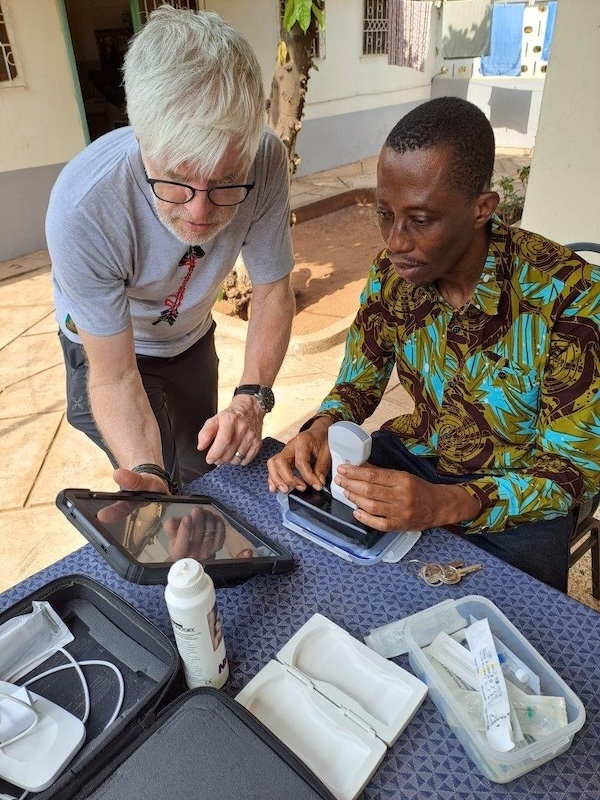
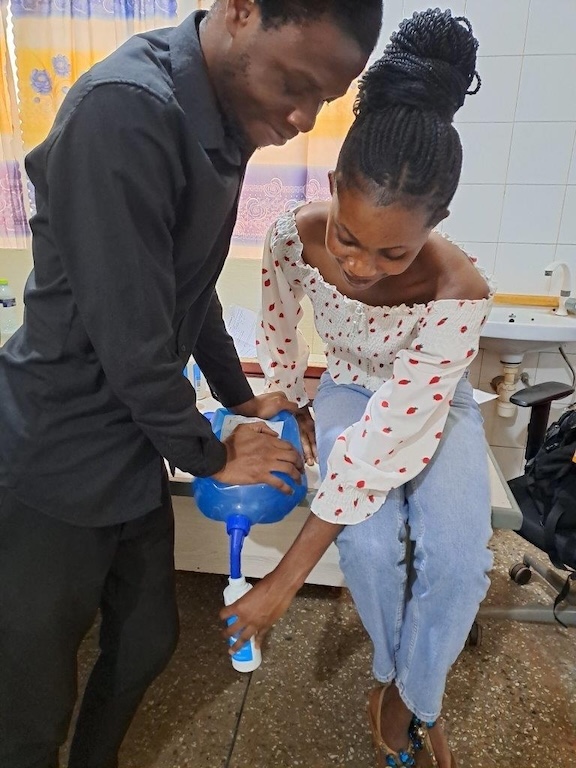
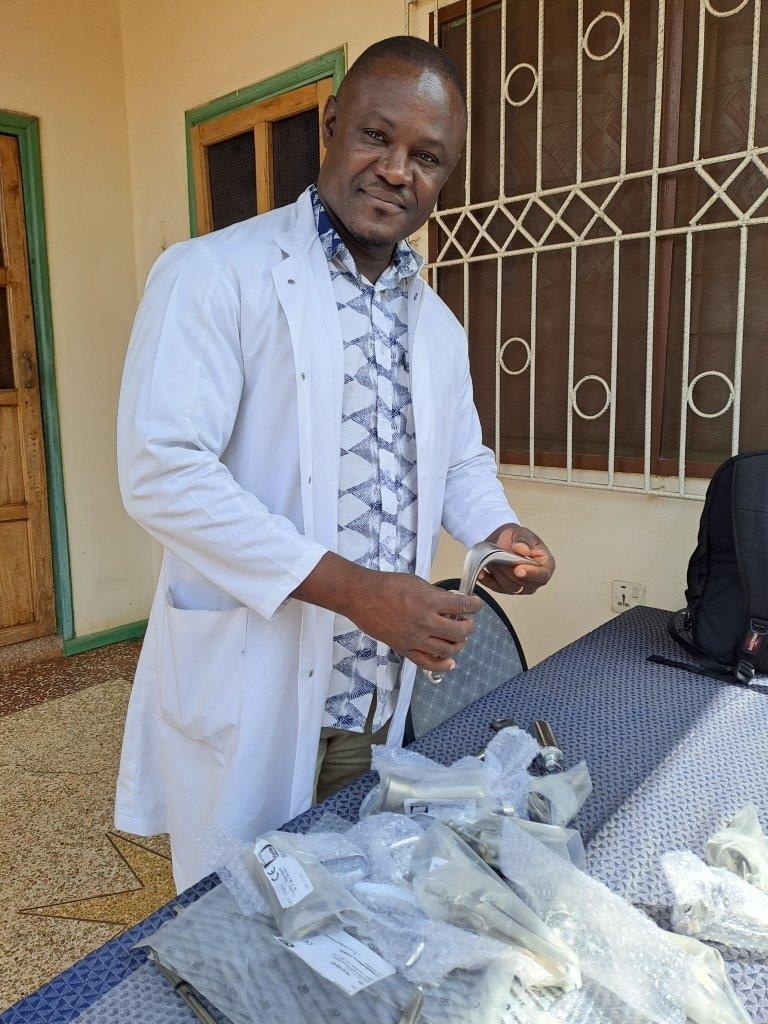
Clinical Collaboration & Final Ceremony
As part of the program, Dr. Birgitta Bauer assisted in a gynecological surgery together with the local team. The procedure involved the treatment of a blockage in the vaginal area and was directly connected to the diagnostic work done during the ultrasound training. This practical collaboration offered a valuable opportunity to apply the skills and knowledge shared in the course.
Later that day, power outages disrupted the planned ultrasound sessions. Despite these technical challenges, the commitment of the team remained strong.
At the end of the training, participants came together for a final quiz, shared their feedback, and received their certificates. The atmosphere was warm and appreciative – a fitting close to two weeks of engaged and focused learning.
